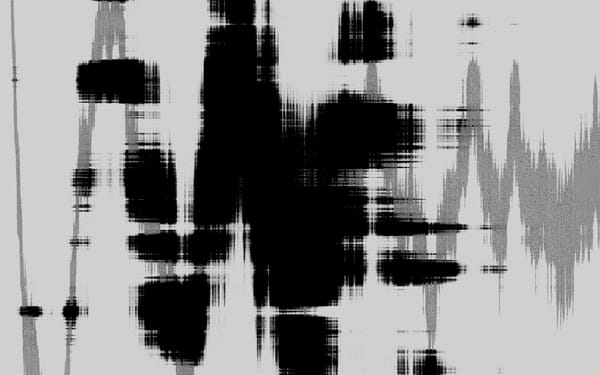Days 1-8 of The Sydney International Piano Competition
This July, The Sydney International Piano Competition 2021 kicked off with a gala concert from Moscow’s Great Hall of the Conservatory. Andrey Gugnin laureate of the 2016 competition in Sydney played Liszt’s first Piano concerto accompanied by the Tchaikovsky Symphony Orchestra. The spectacular opening night gala concert featured the reigning champion from 2016 in music by Liszt and Wagner conducted by Pavel Sorokin. This concert was recorded exclusively for The Sydney in April 2021 at the Moscow Conservatory in front of a live audience and Gugnin’s performance in the concert was generously sponsored by Gillian Williams. Welcome messages from the artistic director Piers Lane, chairman of the board Virginia Braden and Governor general of Australia, his Excellency-general the honourable David Hurley then followed.
https://youtu.be/auL49wHhhQ4
A few words about the competition. Launched more than 40 years ago in 1977 it is held every four years in Sydney. Taking over as artistic director in 2016 world-famous Brisbane born pianist Piers Lane has steered it from success to international recognition. It has grown to become like the Leeds and Warsaw Chopin competitions a landmark festival in the competition circuit for pianists. This year on account of the pandemic not only was it postponed from last year but had to be held entirely online.
This meant that a key component would ultimately be missing. It did away entirely with the chamber music rounds and concerto rounds. 32 contestants from all around the world appeared over eight days virtually from their home towns with the rigorous and stringent recording arrangements. For the preliminary they each had to produce a 40-minute recital. The 12 going ahead for the semi-finals played a 50-minute recital and finalists played for 80 minutes.
The club 32 is a unique sponsorship body that helps the young musicians appear in the festival. Each musician is paired to a sponsor who covers cost of renting the piano, hall, technicians, tuners, etc. This system has proved very popular and has been taken up by the Leeds festival later this year.
Day 1 - July 2nd
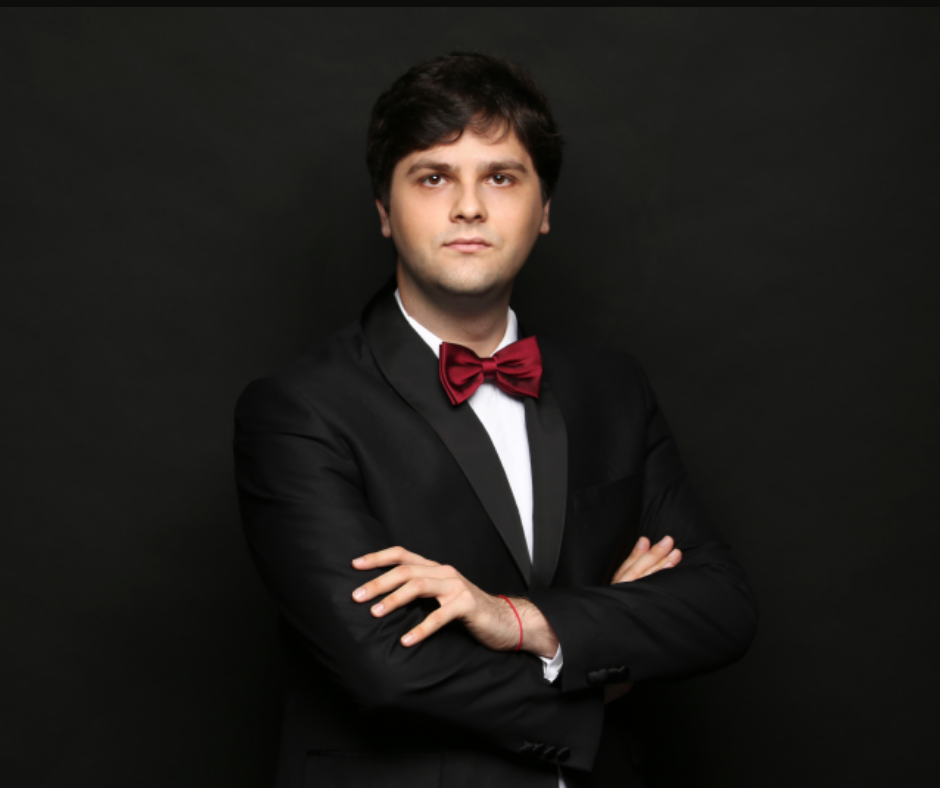
Session 1 | Pianist 1 | Maxim Kinasov from RussiaMaxim Kinasov is a native of Moscow. A 28-year-old piano virtuoso starts of the preliminary rounds. He pursued his bachelor's degree from the Moscow Tchaikovsky Conservatoire. He then moved to Manchester where he gained his master’s degree. Maxim has won many prizes in competitions and festivals around Europe, UK and Russia.
Let’s have a look at the structure and format of this year’s competition. It was made unique by the pandemic and resulted in a completely online competition. At the very last minute 8 competitors had to withdraw from the preliminary rounds. Four candidates therefore were asked to step in at the very last minute preparing a whole new programme for the preliminaries including learning and memorising an Australian modern piece.
The contents of the 40-minute-long programme is entirely up to the candidates. All that was asked is that they include a piece by an Australian composer. Almost all chose Carl Vine. His five bagatelles are extraordinary pieces and were among the choices of most of the contestants.
On day one of the competition at 2 o’clock on Friday, 2 July the 28-year-old Russian Maxim chose a heavyweight programme relying mainly on warhorses of the piano repertoire. He opened his recital with a little known Russian composer Sergei Slonimsky nephew of the well-known American writer Nicholas. It is an Intermezzo in the memory of Brahms. This is a typically Russian brooding piece with a gentle melodic sweep to it. It is not far away from the world of Rachmaninov’s Elegy. The second work he chose is very well known to concert pianists and audiences worldwide; Book one of Brahms’ Paganini variations. This is a technically very demanding work and there was plenty to delight the ear. There was insufficient light and shade however to make the impact significant. The next piece Prokofiev’s 7th Sonata in B flat major the middle one of the 3 war sonatas, was given an outstanding performance which is what would be expected from a Moscow conservatory-trained graduate.
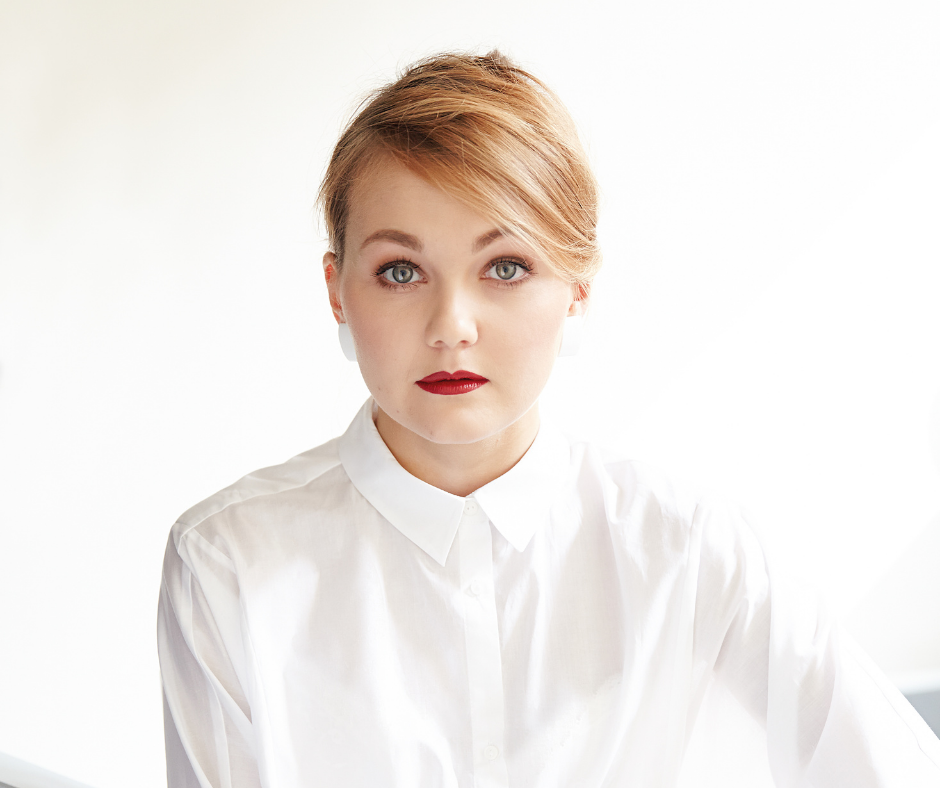
Session 1 | Pianist 2 | Alexandra Pavlova from KazakhstanNext in the first session was Alexandra Pavlova from Kazakhstan. Her recital was also very Russian based. She opened her concert with Weinberg’s sonata number six an abstruse and dour work in two movements. Although she played very convincingly I am not quite sure this makes for a good competition piece. The next work was Prokofiev’s second Sonata another big work very impressively played. The two contestants have much in common. They both entered the competition at the very last minute. The centrepiece of both programmes was a Prokofiev sonata. They also relied heavily on Russian programmes. And although setting the bar high they lacked the last degree of refinement and charisma.
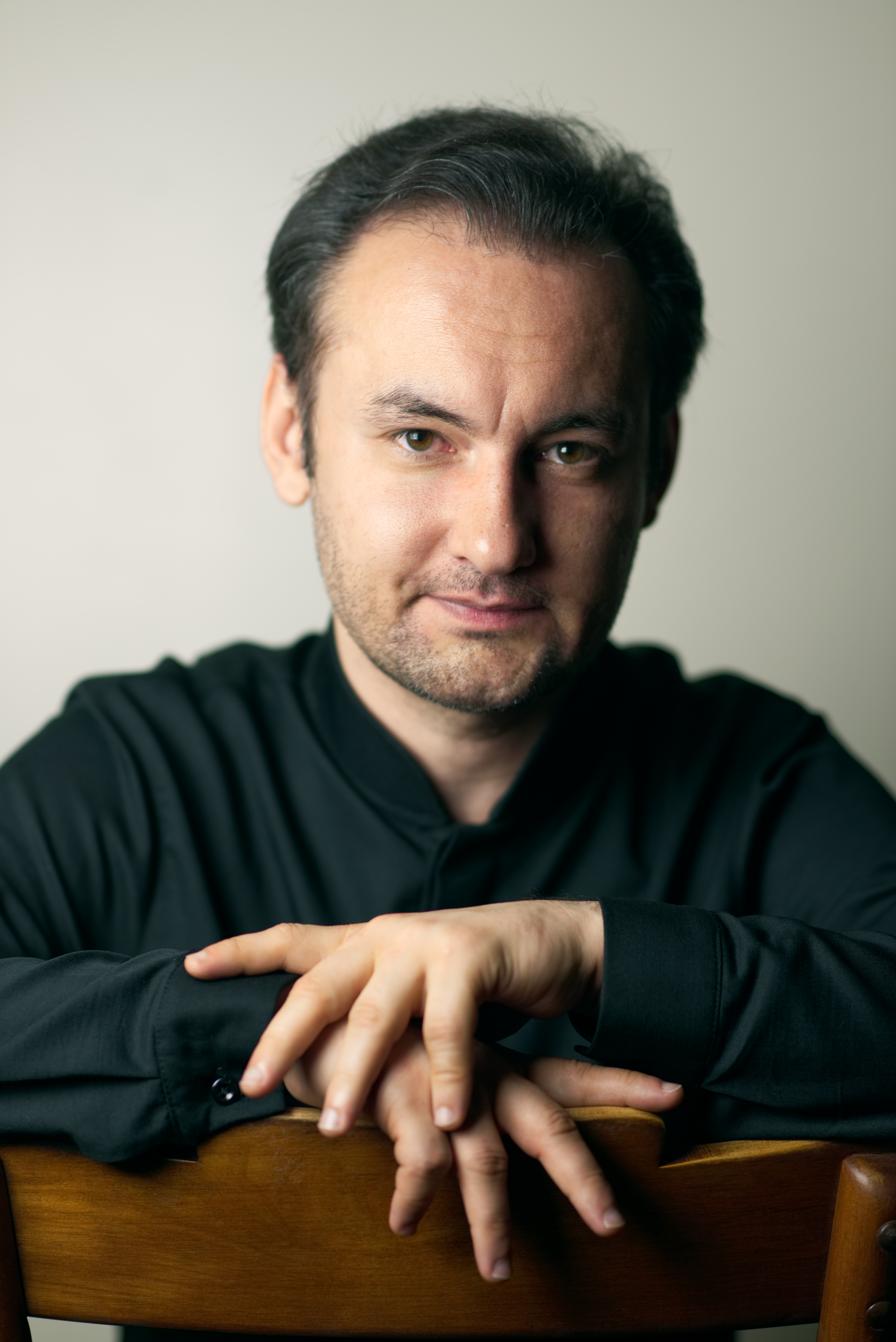
Session 2 | Pianist 3 | Timur Mustakimov from RussiaThe next two contenders were another story entirely. There was no barn-storming virtuosity yet the technique was always at the service of the music which was not necessarily with a bias to the Russian school. Timur Mustakimov who was born in Russia attended the school for gifted children in Kazan. He later proceeded to the Mannes College of music in New York where he studied with Vladimir Feltsman. The winner of many prizes in America he then returned to Kazakhstan for further studies before proceeding to Philadelphia. He chose a very difficult start to the programmme with Haydn’s early C-minor sonata Hob XVI/20 sometimes called Haydn’s Apassionata sonata. The first Sonata Haydn himself labelled as such. His earlier attempts at similar pieces were called divertimenti or partitas. It was wonderfully played by Timur using the full capacities of a concert grand although the original was probably written for a fortepiano.
The next piece was very original and unusual. He chose to play his own transcription of a movement from Bach’s 2nd cello suite transcribed for left hand only. Over-romanticised it fits very well into what he played next without a break: the very well-known Busoni arrangement of Bach’s D-minor chaconne. This received a magisterial performance in this pianists’ hands.
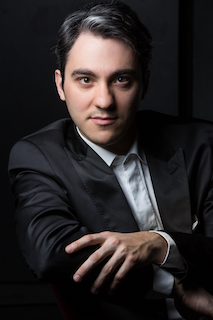
Session 2 | Pianist 4 | Alexander Gadjiev from Italy/SloveniaThe final contestant of the day was Alexander Gadjiev from Italy and Slovenia. Here was a true master of the pianoforte’s various styles. Beginning again with a Haydn sonata this time the much later C-major Hob XVI/48. This two-movement work is a real gem. The opening slow movement he played with great finesse caressing the music and bringing out the voices beautifully. The spirited rondo finale had much clarity and fluency. Moving on to the second work the very familiar Ballade no 4 by Chopin; this was a masterful account with fresh insights, finely judged rubato and exceptional pedaI effects and phrasing. Capping the recital was a wonderfully pliant and expressive excerpt from Messiaen’s Vingt regards. He chose to play the XV: Le Blaiser de l’Enfant-Jesus. The tone colours and expressive devices were all encompassing. A lovely and unusual choice and very successful indeed. I would nominate Alexander Gadjiev as a semi-finalist from day one.
Day 2 - July 3rd
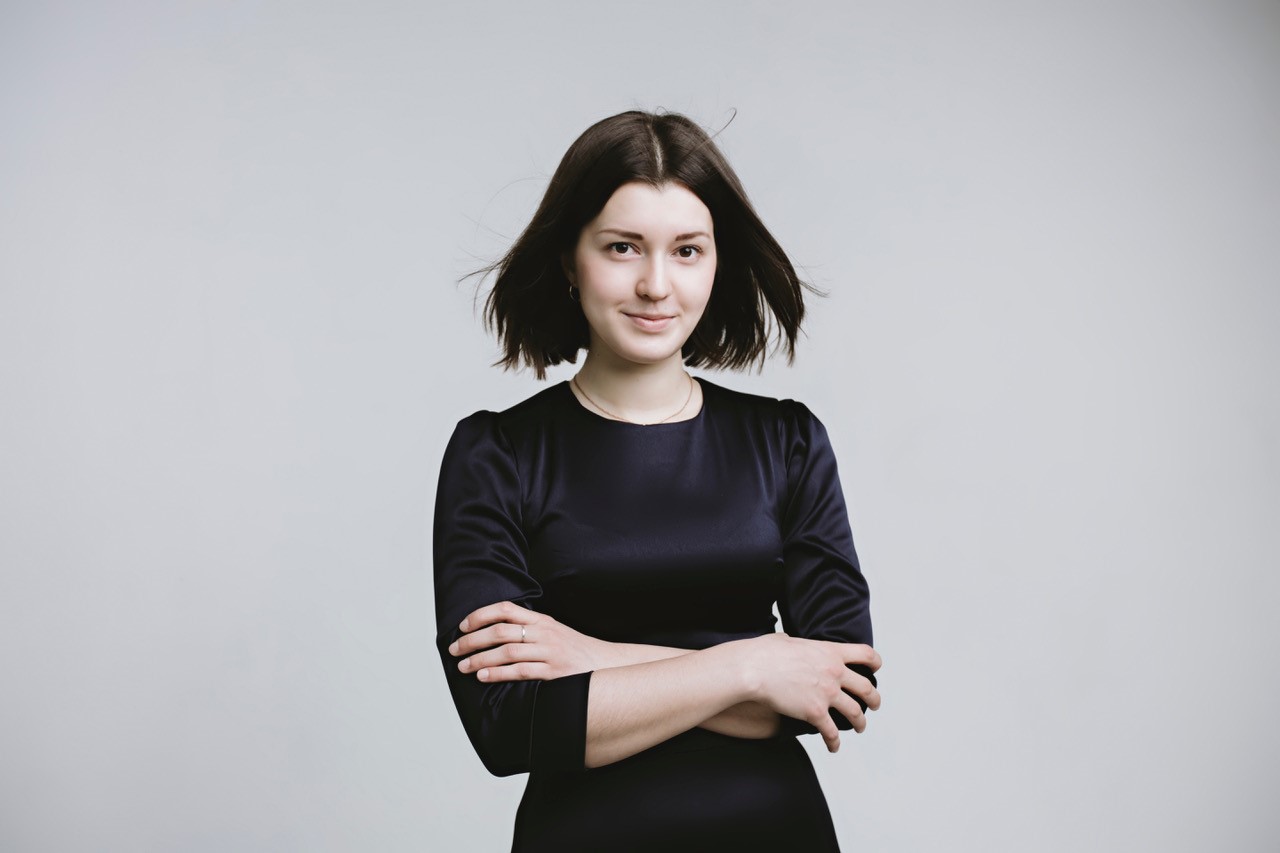
Session 3 | Pianist 5 | Anna Geniushene from Russia
I last encountered this wonderfully gifted young woman at the last Tchaikovsky competition in Moscow. She was the laureate in the 2018 Leeds piano competition and has won several other prizes especially in Italy and Russia. The choice of programme was very interesting. Only the most musical performer would choose the opus 33 Bagatelles of Ludwig van Beethoven. These quirky often humorous pieces require a sure touch. What I missed is a certain ruminative or improvisatory quality in the playing. It was all very positive playing but very pretty and boring in the ultimate respect. Quite the opposite was an aggressive and trenchant view of the Sonata by Bartok. This had a master’s touch and it was entirely convincing from start to finish. Her recital opened with three lovely mood pieces in romantic style by two Australian composers Frank Hutchens and Alfred Hill. She played one of the popular Etude-tableaux by Rachmaninov as an encore. She would be my choice for the semi-finalist rounds.
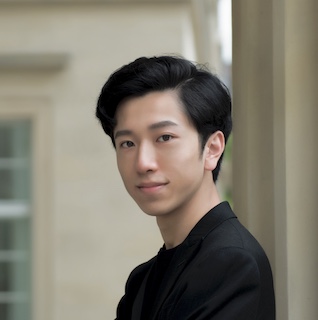
Session 3 | Pianist 6 | Ziyu Liu from ChinaThe youngest competitor so far is the 25-year-old Chinese Ziyu Liu. Although born in Shandong he soon moved to Beijing to study at the conservatory. His talent was recognised by visiting professors in masterclasses and he sought further tuition in Hanover in Germany. Although brave in his choice of repertory he was let down badly by the technical constraints of his instrument. The two main pieces he selected although not strictly speaking beyond his technical capabilities did however stretch him maximally. The opening Chopin Ballade no 2 was routine in approach and Schumann’s Carnaval often beautifully played lacked overall cohesion.
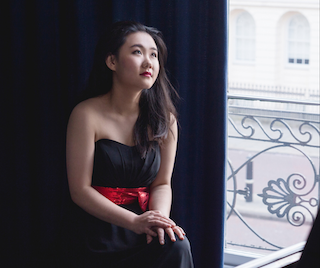
Session 4 | Pianist 7 | Ke Ma from ChinaThis pianist was a complete revelation. Including one of the most difficult works for piano ever written she started with a sonata by Mozart. She has the right feeling for this kind of music, the interpretation of Mozart on a modern concert grand. She brought to it extreme conviction, ease of technical execution and a beguiling gift for melody. As already mentioned it was impossible to envisage a performance of Ravel’s Gaspard de la nuit that could be bettered either technically or musically. As an encore, she chose the wonderful Jamaican rumba by Arthur Benjamin. This young lady is a complete pianist and a musician’s musician. I would be very surprised if she does not survive till the last round and appear in the list of six laureates.
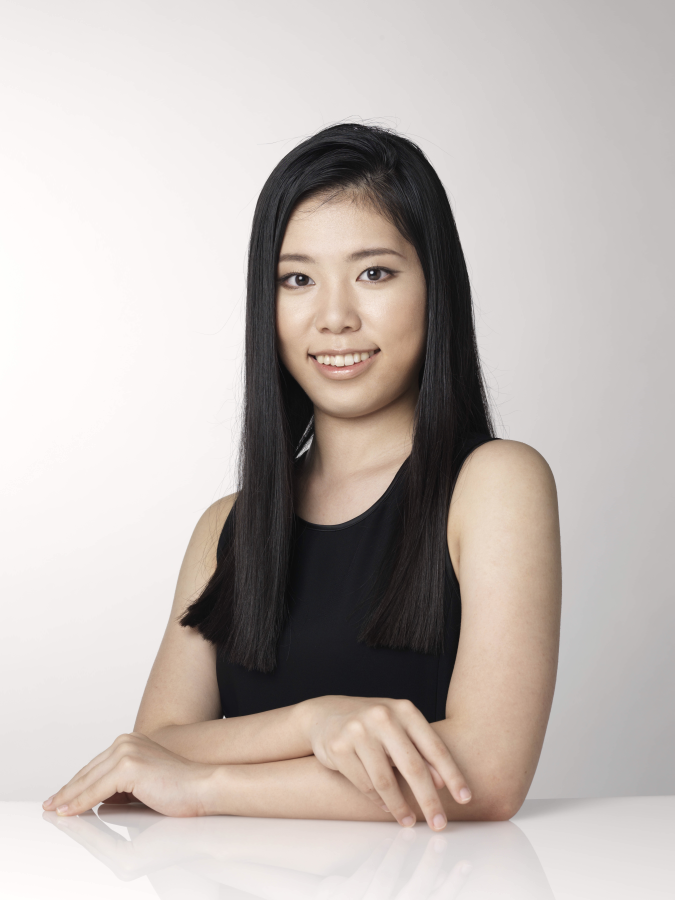
Session 4 | Pianist 8 | Shion Ota from JapanBarely 20 years old this wonderful Japanese girl has a promising career ahead of her. While not lacking in any way with technical mastery, she is yet to scale the heights of interpretative ease. I would on the other hand give her full marks for the selection of programme. The only piece familiar to me was Ravel’s La valse. She did well to choose as an opening another French musician, this time of the Baroque era. It has long been recognised that Ravel admired the music of his compatriots Rameau and Couperin. Starting her recital with an excerpt from Rameau’s Pieces de clavecin was an inspired stroke. This piece was a Bourrée followed by six doubles. Pert and nimble in execution it was a delight to the ear.
While fully the equal of Ravel’s fearsome technical demands in La valse she was unable to achieve true mastery of the score. But she is young and very talented and although she may not reach the semi-finals she could well carry away other prizes. The rest of the program was sheer delight, all completely unknown to me. Prokofiev’s early opus 2 Etudes are a bunch of vividly contrasting pieces. Although very much his own man there is influence clearly audible from Rachmaninov to Scriabin and even at times reminiscent of Chopin. She capped her recital with an astonishing arrangement of the last love duet from act 3 of Strauss’ opera Der Rosenkavalier composed by Arthur Benjamin. And as if this was not sugar enough she left us wanting more with the encore of another Strauss arrangement: this time by American piano virtuoso Leopold Godowsky. This was the Strauss lied ‘serenade’.
Day 3 - July 4th
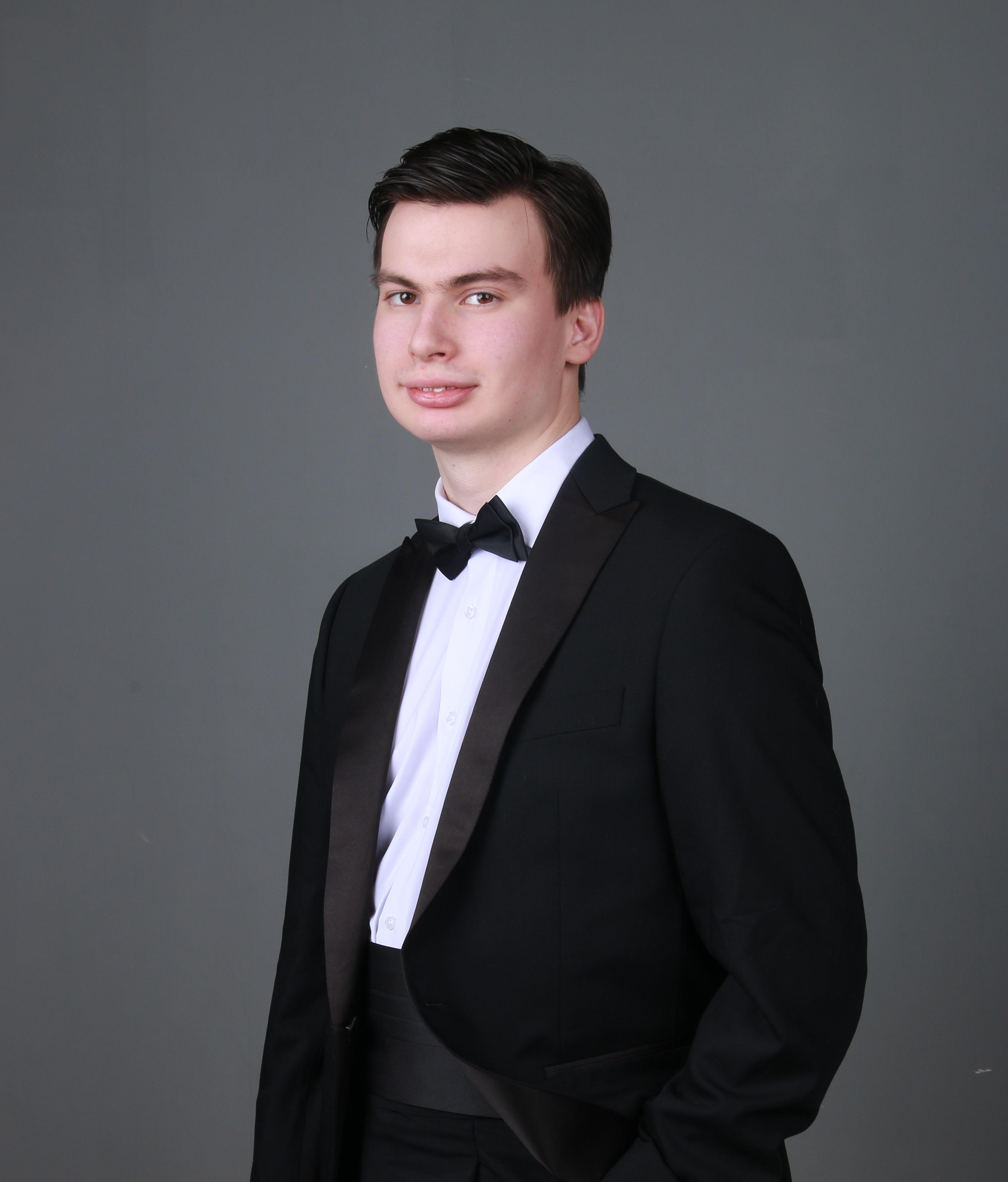
Session 5 | Pianist 9 | Aleksandr Kliuchko from RussiaJust 20 years old this gifted Russian pianist attended the Frederic Chopin Moscow State College of musical performance. He is now a pupil at the Ecole normal de musique de Paris Alfred Cortot. His opening piece was Beethoven’s Tempest Sonata, technically well- played but ultimately a bit dull. His next piece Liszt’s Rhapsody Espagnole was a miracle of execution. This is a pianist to watch out for. The young man was completely at home in playing his compatriot’s sonata no 3. He chose the third sonata in A minor opus 38 by Prokofiev. His playing shone in both the Liszt and the Prokofiev.
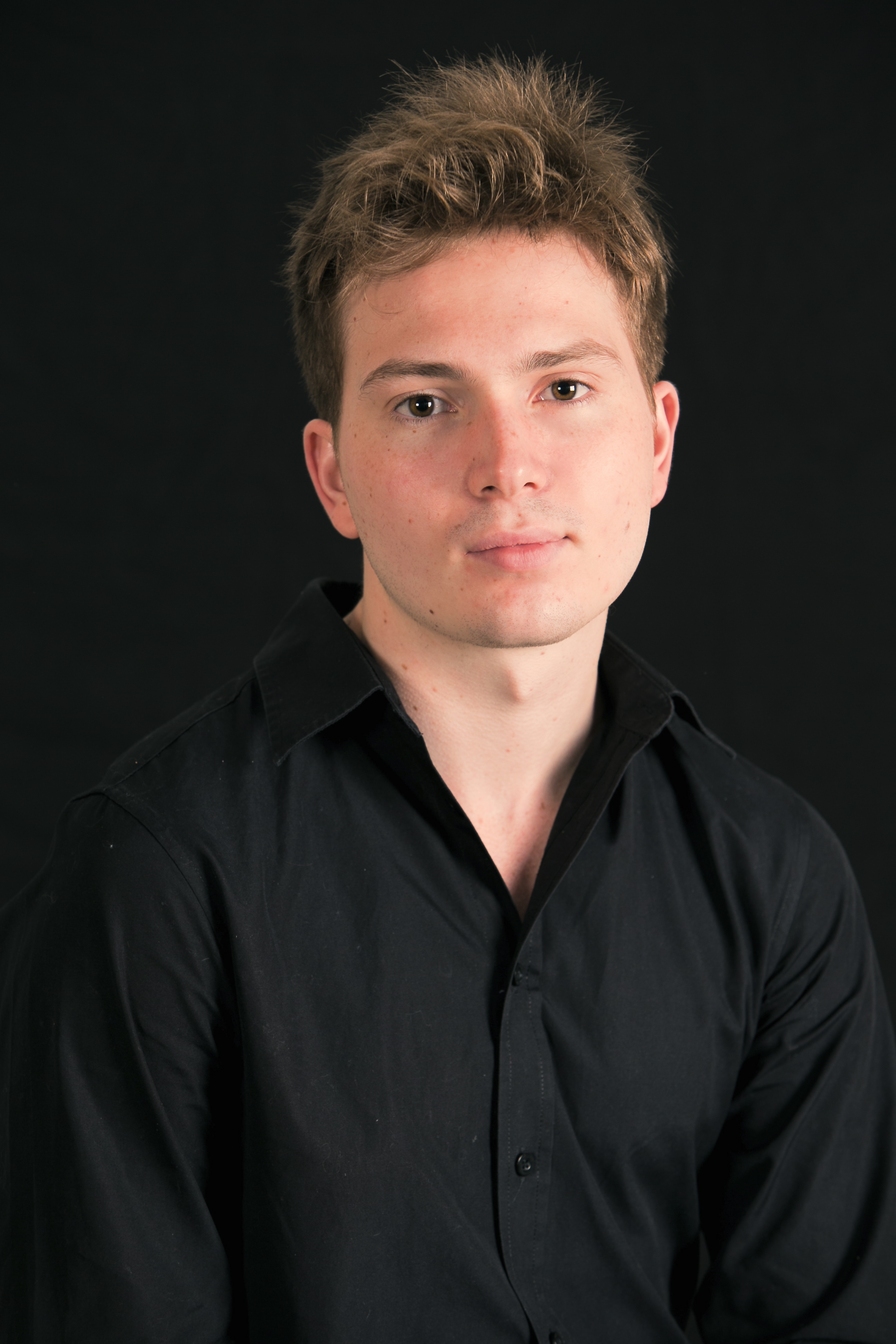
Session 5 | Pianist 10 | Maxwell Foster from AustraliaThe first of three Australian candidates Maxwell also stepped in at the very last moment. His programme also included a Beethoven sonata. Starting with Carl Vine’s complete cycle of 5 Bagatelles he proved an excellent interpreter. The second piece was Beethoven’s early C-major sonata opus2 no 3. Sadly, marred by an unprecedented memory lapse in the first movement he didn’t regain composure until the very last movement. This last extremely virtuosic movement was very well played bringing the long sonata to a rousing end. His largely competent playing reached a climax with Scriabin’s 4th Sonata in F-sharp major in two movements.
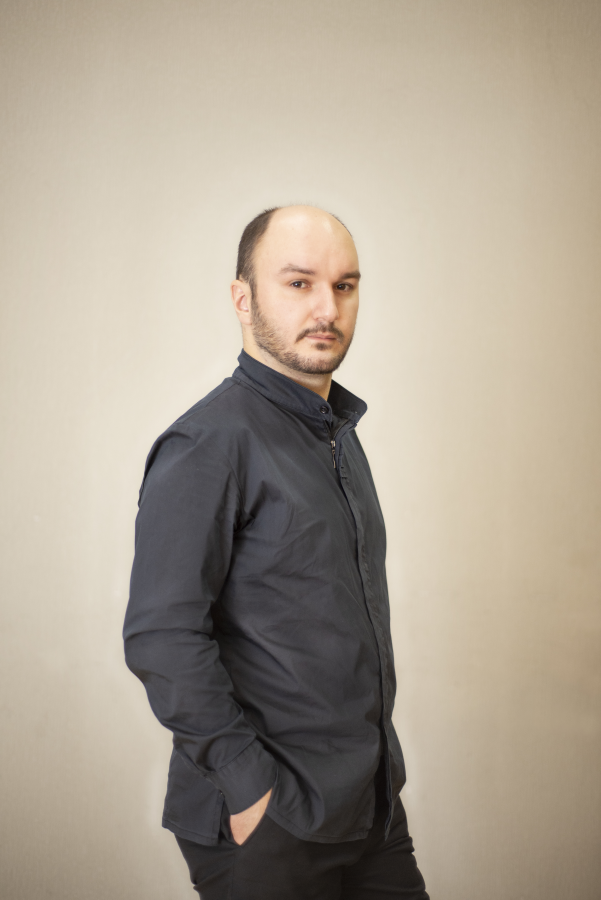
Session 6 | Pianist 11 | Rustam Muradov from Russia This 33-year-old man is already a mature artist. A graduate of both the Saint Petersburg State Rimsky Korsakov conservatory and the Moscow State Tchaikovsky conservatory, the programme he chose to perform also reflected the fact that he was a complete musician. Starting with Brahms’ op 116 Fantasies he leaned shades of colour, tone and texture to unimaginable heights. Again, in his choice of second piece he displayed great musicianship in Haydn’s early C-minor sonata Hob XVI/20. Even if this young man does not reach the finals I will have been very glad to have heard such an exceptional musician.
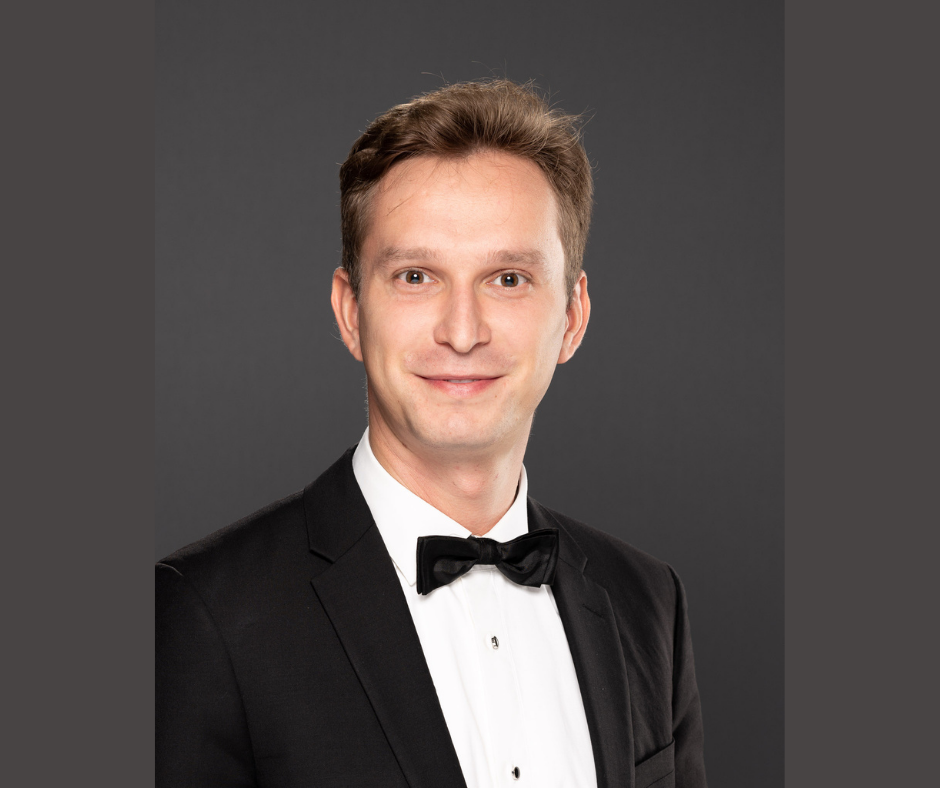
Session 6 | Pianist 12 | Alexander Malikov from Canada Although born in Russia this 30-year-old pianist moved to Canada in search of musical education. Yet only 30 he has carved for himself a unique position in North America both in recital and with orchestra and has even premiered a piano concerto written by himself. He started his recital with two sonatas by Scarlatti. Next he played Haydn’s late C- major sonata Hob XVI/50. Also, a nicely shaped programme it was not particularly outstanding in execution. Debussy’s Voiles a Prelude from his first book was shimmering in its beauty. Liszt’s second Legende and the Allegro de concierto by Granados were both unexpected choices. In my choice for semi-finalists I would like to see pianist no 11 Rustam Muradov from day 3 from Russia.
Day 4 - July 5th
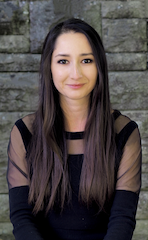
Session 7 | Pianist 13 | Tamila Salimdjanova from Uzbekistan Born in a family of musicians Tamila was born and raised in Tashkent. She gave her debut at age 9 in a Mozart concerto conducted by her grandfather. She then proceeded to Moscow to study with Irina Plotnikova (herself a winner of The Sydney in its year of inception 1977) at the state Tchaikovsky conservatoire. Moving then to the Royal College of music in London she studied with Dmitri Alexeev and Vanessa Latarche. She is currently pursuing higher studies in Bern. Already a recipient of several prizes she has given performances all over Europe. Her recital here at The Sydney preliminary rounds was nothing short of miraculous. Beginning with a wonderful interpretation of Bach’s Toccata in D major, she turned in a complete interpretation intelligent and dramatic by turns. The next piece was an unusual choice in that she chose to play a rarely heard sonata by Clementi. Short and pretty it did not outstay it’s welcome. One of the truly outstanding performances so far in the preliminaries was another fine performance of Prokofiev’s 7th sonata. Truly miraculous in execution she was fully equal to every emotional and technical hurdle. A veritable tour de force.
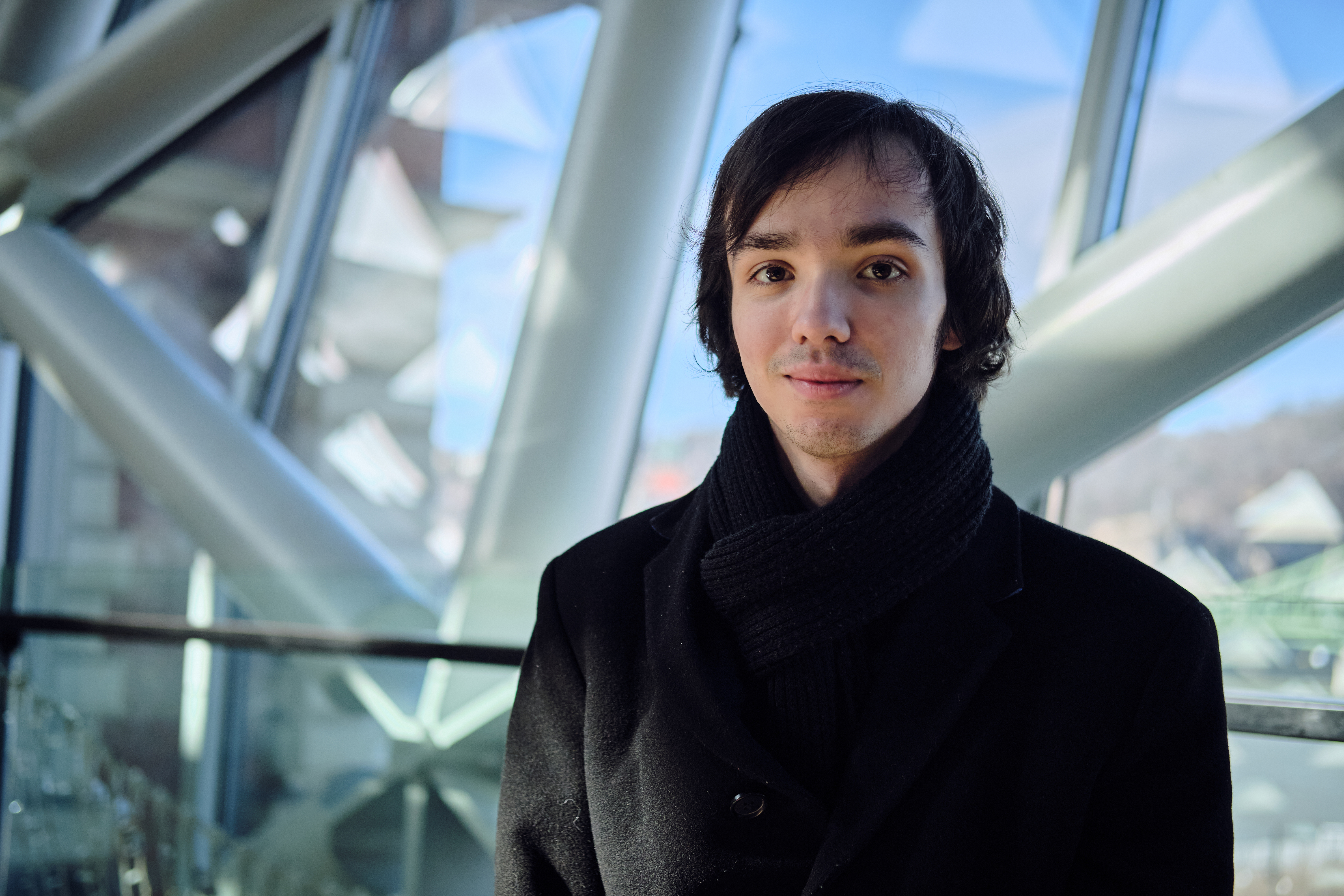
Session 7 | Pianist 14 | Ádám Balogh from HungaryNot yet 25 years old Ádám is an extremely gifted young Hungarian and has already carved himself a reputation. He is at present continuing his post graduate studies at the Franz Liszt Academy of music in Budapest. He was only 13 when he appeared in a concerto with Ivan Fisher conducting the Budapest Festival Orchestra. Specially for someone so young his preliminary round recital was exceptional in every sense of the word. Displaying a shrewd sense of programming there was not one work in the recital even remotely familiar. This of course can go against one but in this young man’s case it worked out entirely in his favour. Unusually starting his recital with Stephen Foster’s arrangement from Richard Strauss’ opera Der Rosenkavalier; it is called a Ramble on the Last Love-Duet, the fourth of Settings of Favourite Melodies. This is an enchanting piece and Ádám showed that it worked well as a curtain raiser too. The second piece again an odd choice for a competition was a much better known Bach/Busoni Chorale prelude. Ádám’s playing captured the mood perfectly and the voicing of inner parts was miraculous. The two main pieces again delightful if unusual choices were by Scriabin and Stravinsky. Sonata No 7 by Scriabin is not an easy work either for the listener or for the player. This young man did a magnificent job by any standards. His recital was capped by an outstanding rendition of Guido Agosti’s arrangement of 3 pieces from Stravinsky’s Firebird. Not as popular as Stravinsky‘s more familiar pieces from Petrushka these make a welcome addition to the catalogue. Certainly, a talent to watch. I would be very surprised if Ádám did not place in the finals. So, to be sure both Tamila and Ádám would be my recommendations from day 4.
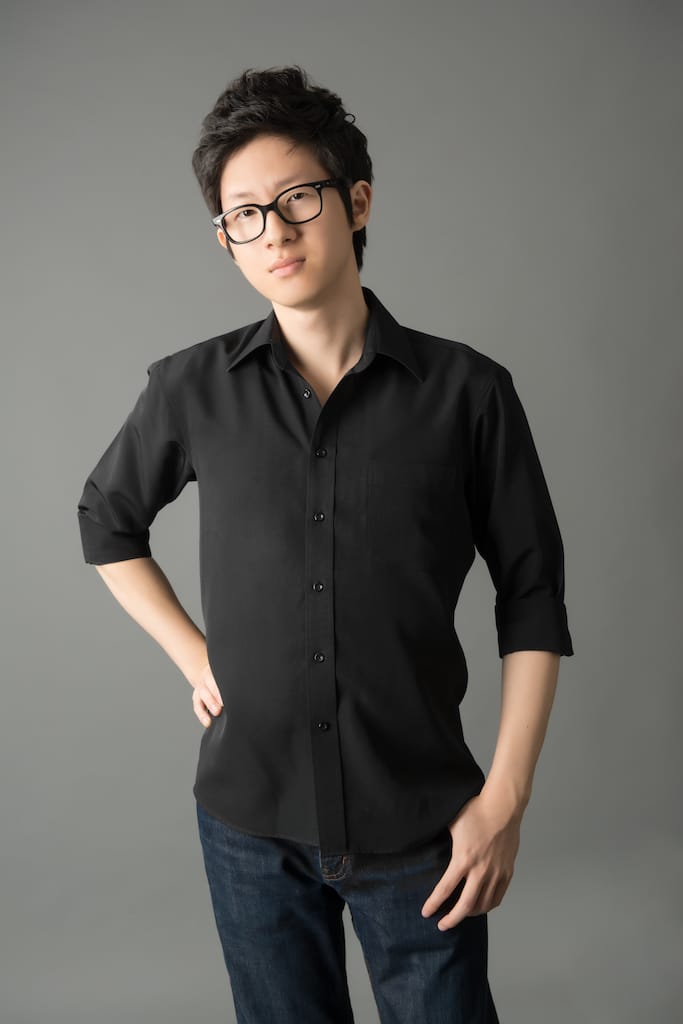
Session 8 | Pianist 15 | Kyoungsun Park from South KoreaPianist 15 from Korea is immensely talented. He opened his programme with a piece called Nocturnal by Australian composer Peter Sculthorpe. This was played with much tenderness and atmospheric beauty. Next Park played Variations on a theme by Rode by Carl Czerny in E flat major opus 33. These variations once made popular by Vladimir Horowitz is the perfect vehicle for this young man’s virtuosity. An unusual selection was two pieces from Otto Respighi’s six pieces for piano. Stravinsky’s 3 movements from Petrushka was quite simply incredible. This young man seems to have no limitations in technical proficiency. He managed contrasts of dynamics and tempo as if conjuring with a full symphony orchestra. And that is no mean achievement.
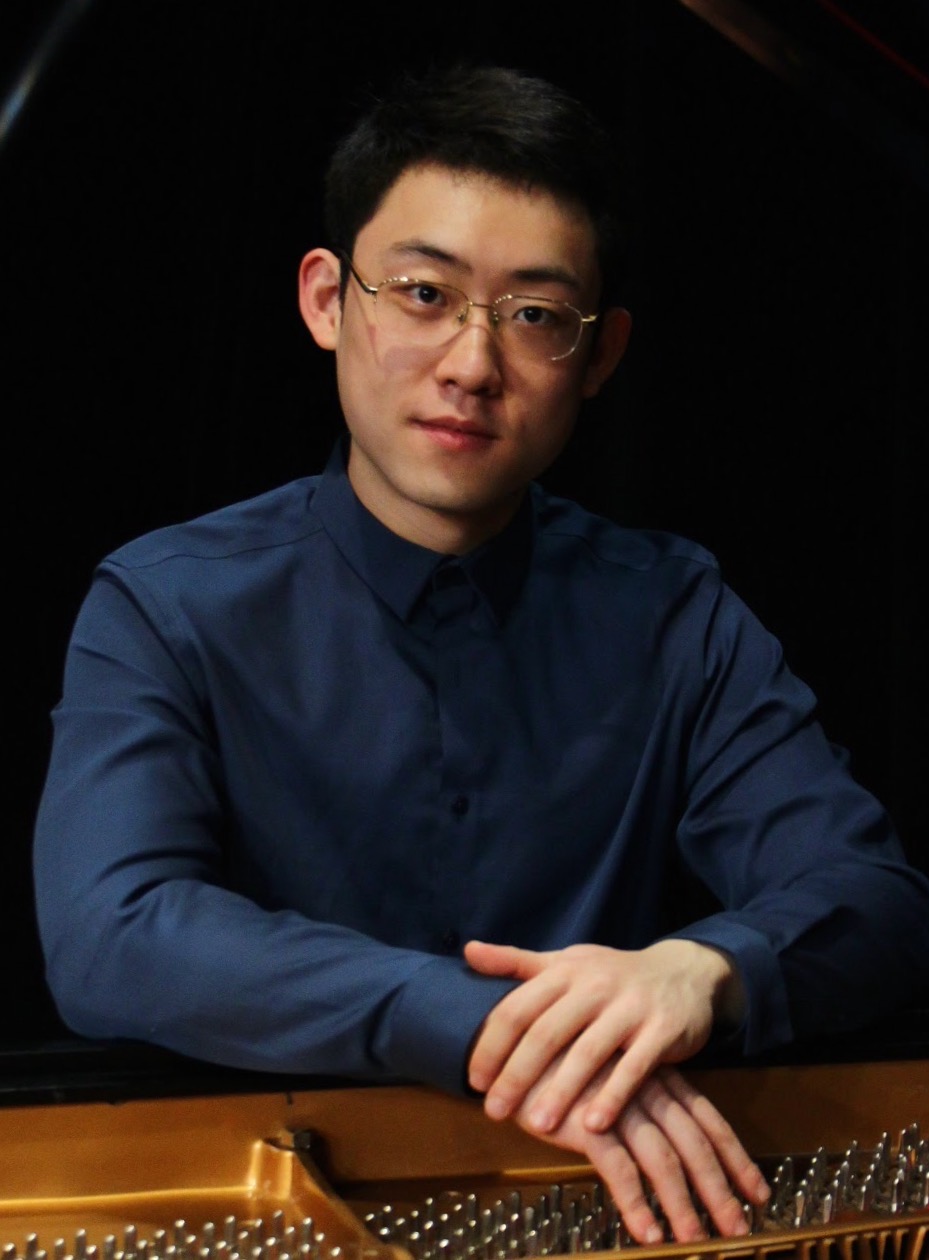
Session 8 | Pianist 16 | Ziang Xu from ChinaAnyone who programmes Liszt’s B minor sonata with a Bach French Suite has got to have good credentials. This 30-year-old pianist from China has received accolades all over the United States. He recorded this programme where he now lives and studies in Boston. The Liszt Sonata requires everything in the armoury of a concert pianist. The entire cumulative effect of this 35-minute continuous piece was simply magisterial. There was light and shade, delicacy of touch, singing tone when required and most of all a huge all-encompassing tone. This young Chinese will go far regardless of what happens in the finals of The Sydney. I would unhesitatingly recommend both Kyougsun and Ziang into the semi-finals.
Day 5 - 6th July
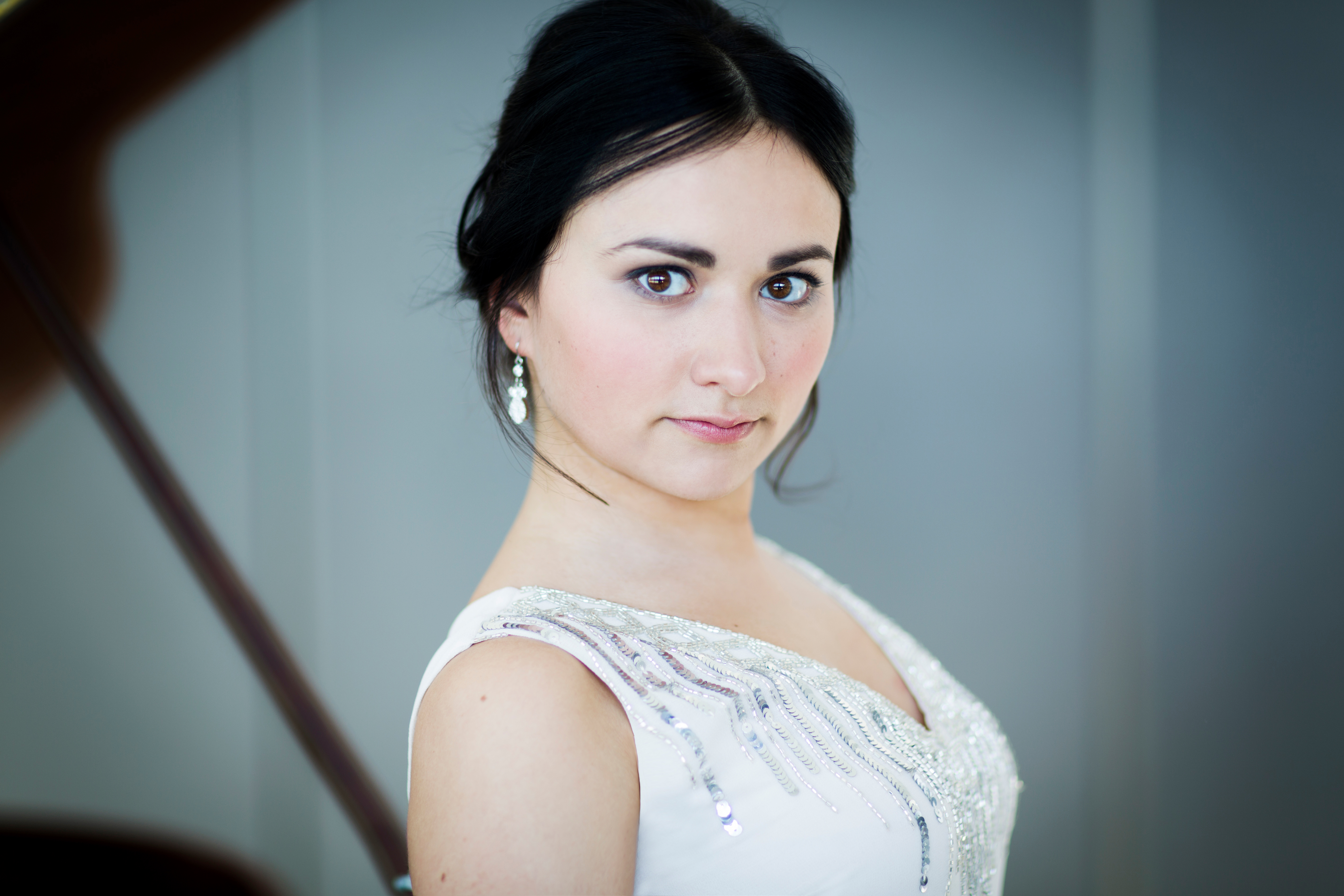
Session 9 | Pianist 17 | Dinara Klinton from UkraineBarely 32 this young girl from Ukraine has achieved strides in the classical music world. She studied first at the State Tchaikovsky Conservatoire in Moscow with Eliso Virsaladze. Then proceeding to London where she is assistant professor at the Royal College of music, she has won significant awards including second prize at the Busoni competition when she was only 18. She has gone on to perform at some of the biggest venues in Europe including the Philharmonie in Berlin. If that was not enough she has already produced a large body of CDs including all 9 piano sonatas by Prokofiev. Despite all her achievements I found her performance in the preliminary rounds less than entirely convincing. Choosing one of the late piano sonatas of Beethoven was an odd choice given her background. Sonata number 28 in A major opus 101 requires a depth of understanding quite beyond the capabilities the young Dinara possesses. Maybe one of the late Prokofiev sonatas would have been more suited to her technical capabilities. She had no difficulties with the vertiginous challenges Of the Liszt-Mendelssohn/Horowitz Wedding March from the Midsummer Night’s Dream. Yet the Beethoven sonata in full throttle was a case of overkill.
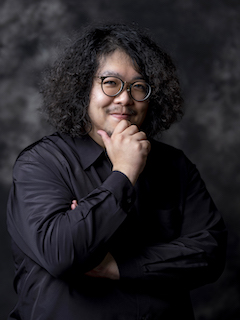
Session 9 | Pianist 18 | Akihiro Sakiya from Japan33-year-old Akihiro from Japan is no doubt a very gifted musician. However, his choice of repertory for the preliminary round was in my opinion not particularly eye-catching. Starting with an arrangement by Stephen Foster of Faure’s song Apres un Rêve he played Rachmaninov’s Etude-tableau op 39 no 9. The centrepiece was Brahms’ Sonata No 1 in C major opus 1. This is a sprawling work receiving an unproportioned reading from the Japanese. With its thick chords and rather clumsy passages this was a real disappointment. He is at present involved in a recording project having recorded 5 CDs of a complete Beethoven sonata cycle. He has tried his hand in conducting - a Mozart opera. He has still to find his niche.
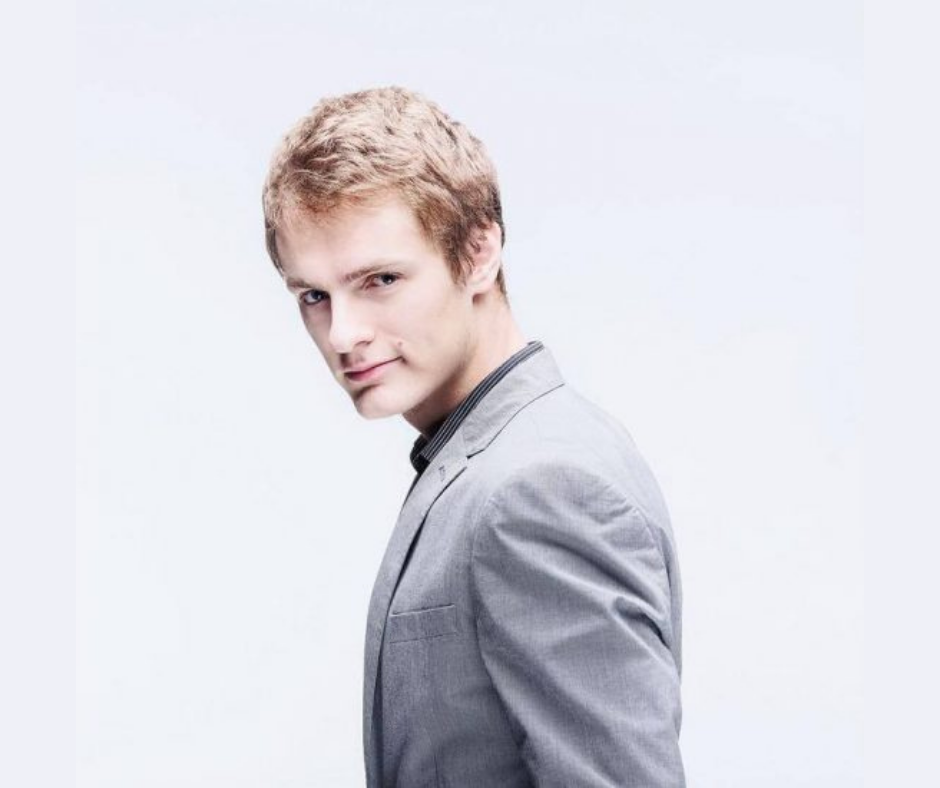
Session 10 | Pianist 19 | Sergey BelyavskyiHere is an incredibly gifted pianist already touted amongst the highest echelons of the international young pianists of the world. He is 30 years old and was born in Russia to study at the Moscow State Tchaikovsky conservatory graduating with honours under Professor Eliso Virsaladze. He has gone on to win international piano competitions including significant ones in Austria and Germany as well as second prize in the Liszt competition in Budapest. His work is recognised already among connoisseurs of piano playing and he has released three CDs. Having said all that his preliminary recital for The Sydney was a tad disappointing. Maybe for me his choice of Schubert’s Wanderer fantasy was inappropriate. Although technically the most demanding of Schubert large scale works it does not have the melancholy and grandeur of the last three piano sonatas. Fastidiously played with complete technical mastery it failed to move me ultimately. Next on the menu with three of Liszt’s Transcendental Etudes. Chassis-beige, Feux follets and Harmonies du soir were all adequately prepared but a bit too similar in style.
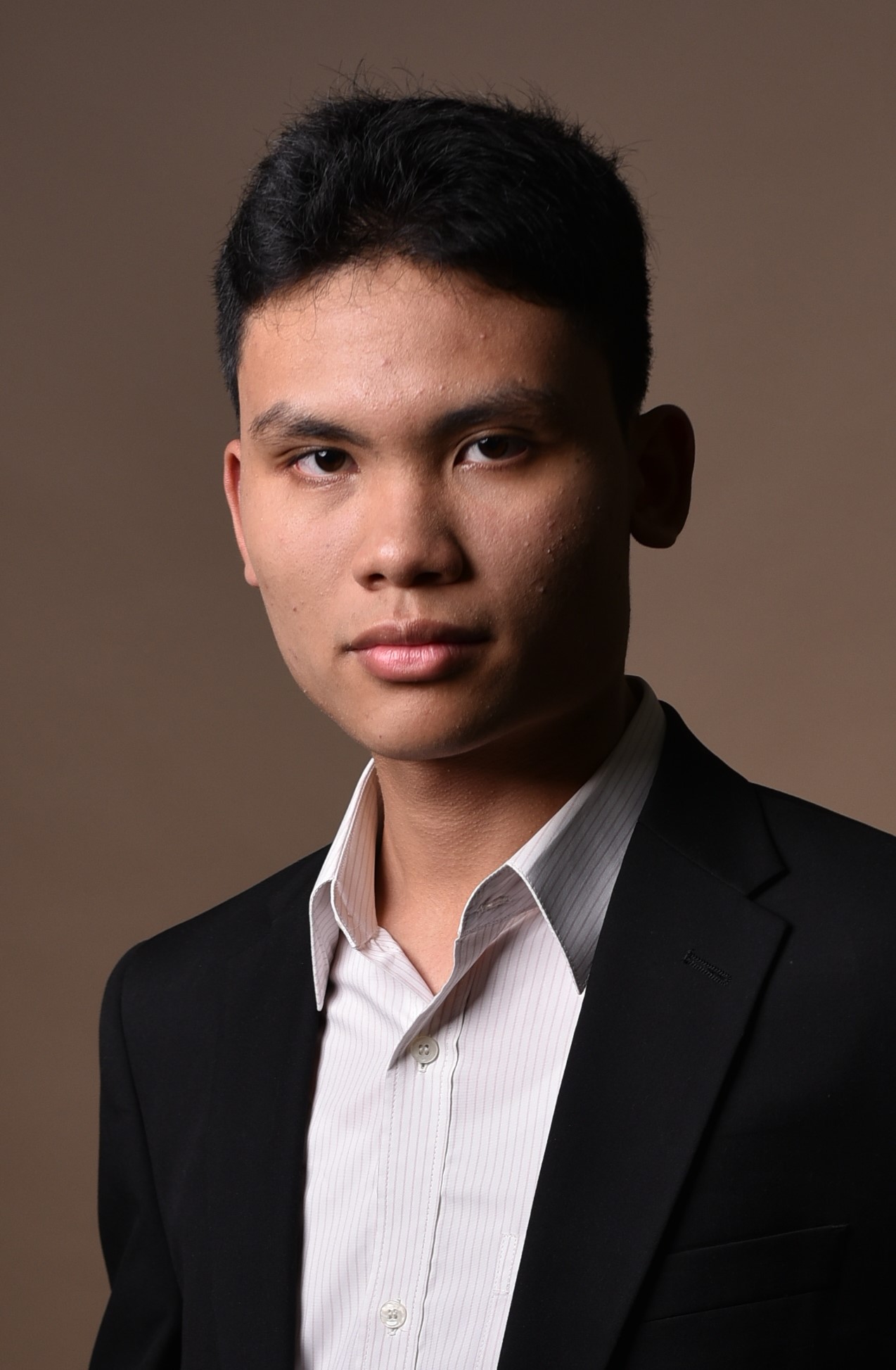
Session 10 | Pianist 20 | Calvin Abdiel from Australia/Indonesia20-year-old Calvin is a representative of the young crop of Australian pianists. Born in Jakarta he gained admission to The Sydney conservatory where he now studies. It is not difficult to see why he has achieved such accolades and prizes in such a short time. Not just technically superior he has an innate understanding of all the music he chose to play. He began with a glorious account of the challenging fifth Sonata by Alexander Scriabin. In complete contrast were the two Préludes by Debussy both well chosen to show off his particular skills. A stunning account of the three movements from Stravinsky’s Petrushka made a fitting climax to an unforgettable performance. This young man is undoubtedly under the world’s spotlight at this moment. I would recommend Calvin as an outright semi-finalist from day 5
Day 6 - July 7th
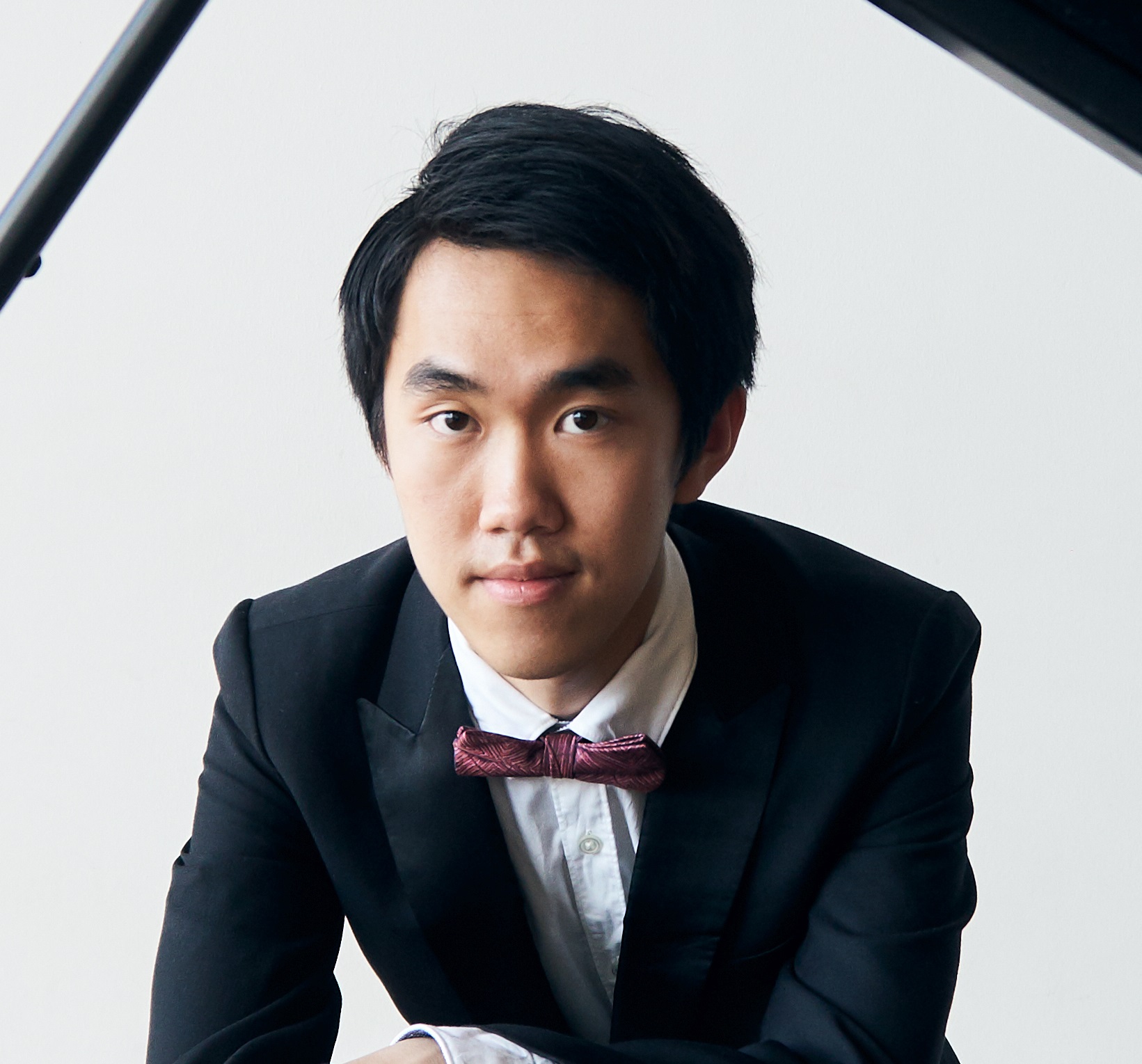
Session 11 | Pianist 21 | Yangrui Cai from ChinaBarely 21 years of age this is a Chinese youngster who was born in Yunan. His talent was quickly recognised and Yangrui continued piano studies at the Oberlin University in Ohio. He has since gone on to winning many prizes. His choices for the preliminary round could actually prove him to victory in the semifinals. There is much contrast of light and shade and his dynamics are subtle and varied. Beginning with the five Bagatelles by Carl Vine, he was specially attuned to this Australian composer’s unique sound world. A compelling interpretation where many others have barely scratched the surface. In complete contrast came Liszt’s Benediction de Dieux dans la solitude from the Harmonies poetiques et religieuses. A wonderful singing line dominated the heavy harmonies. Finally came the first book from Brahms’ Paganini variations. Every hurdle was fearlessly tackled and he still had time to make sense of the piece. A very convincing performer already a master with a great career ahead.
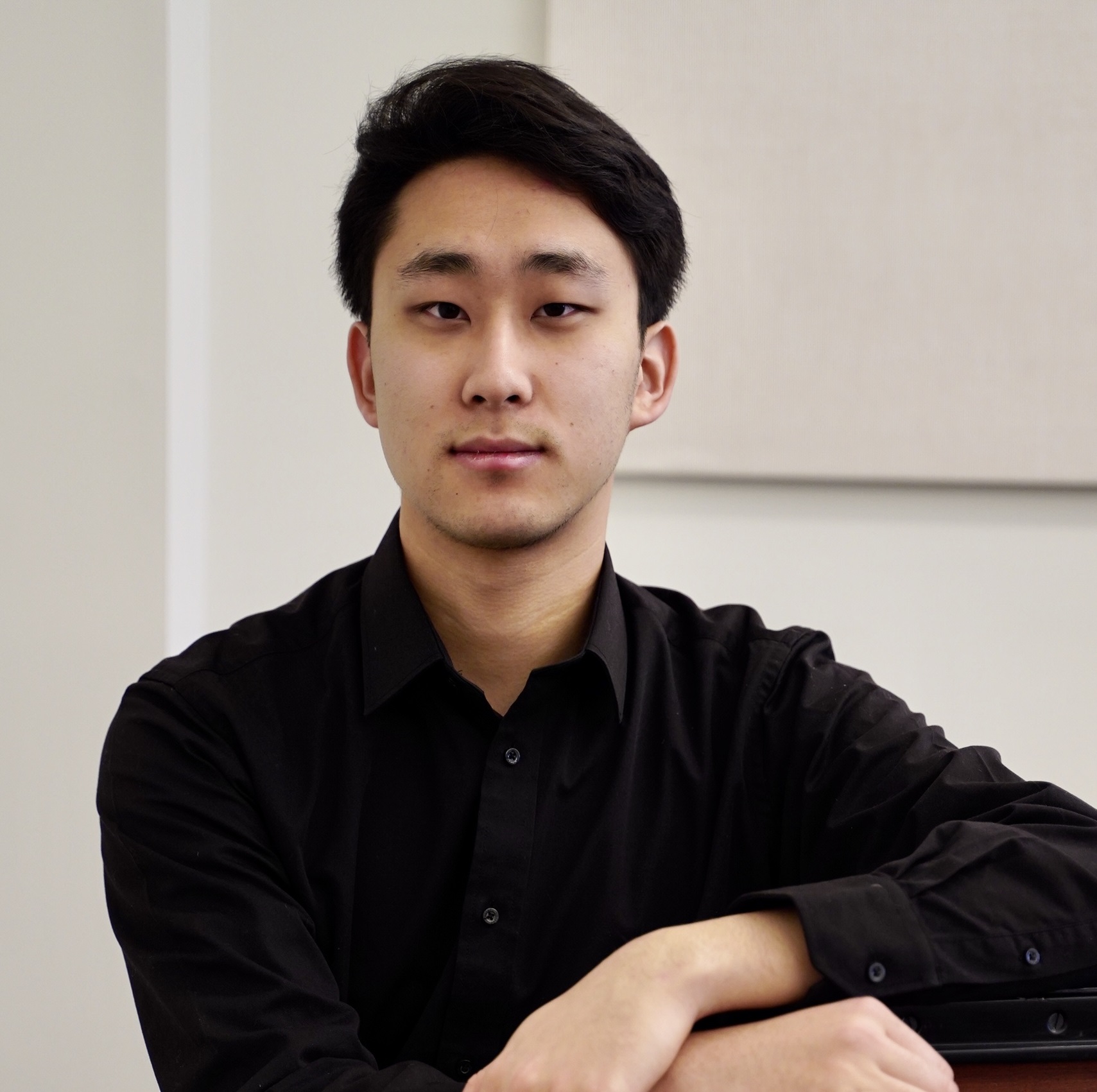
Session 11 | Pianist 22 | Kevin Chow from Australia25-year-old Kevin originally from Thailand joined the Melbourne conservatory. He is now pursuing Masters studies at Yale university. This man’s talent is genuinely remarkable. His recital began with a modest interpretation of Bach’s Toccata in C minor. Then was Stephen Foster’s arrangement from the last act of the Richard Strauss opera Der Rosenkavalier. Called a Ramble on the last Love- Duet this is at least the third time it is being played. Each time one marvels anew at the sheer ingenuity and voicing of the parts. Yet it sounds improvisatory and beguiling in its beauty. The piece de resistance was yet to come. No one has yet dared to play Rachmaninov’s second piano Sonata. Scored on a massive scale it requires nothing short of a gargantuan technique. This was a miracle of a performer. Never distracting from the task at hand he was in control all the way and blew me away completely. I would nominate both Yangrui and Kevin into the semi-finals.
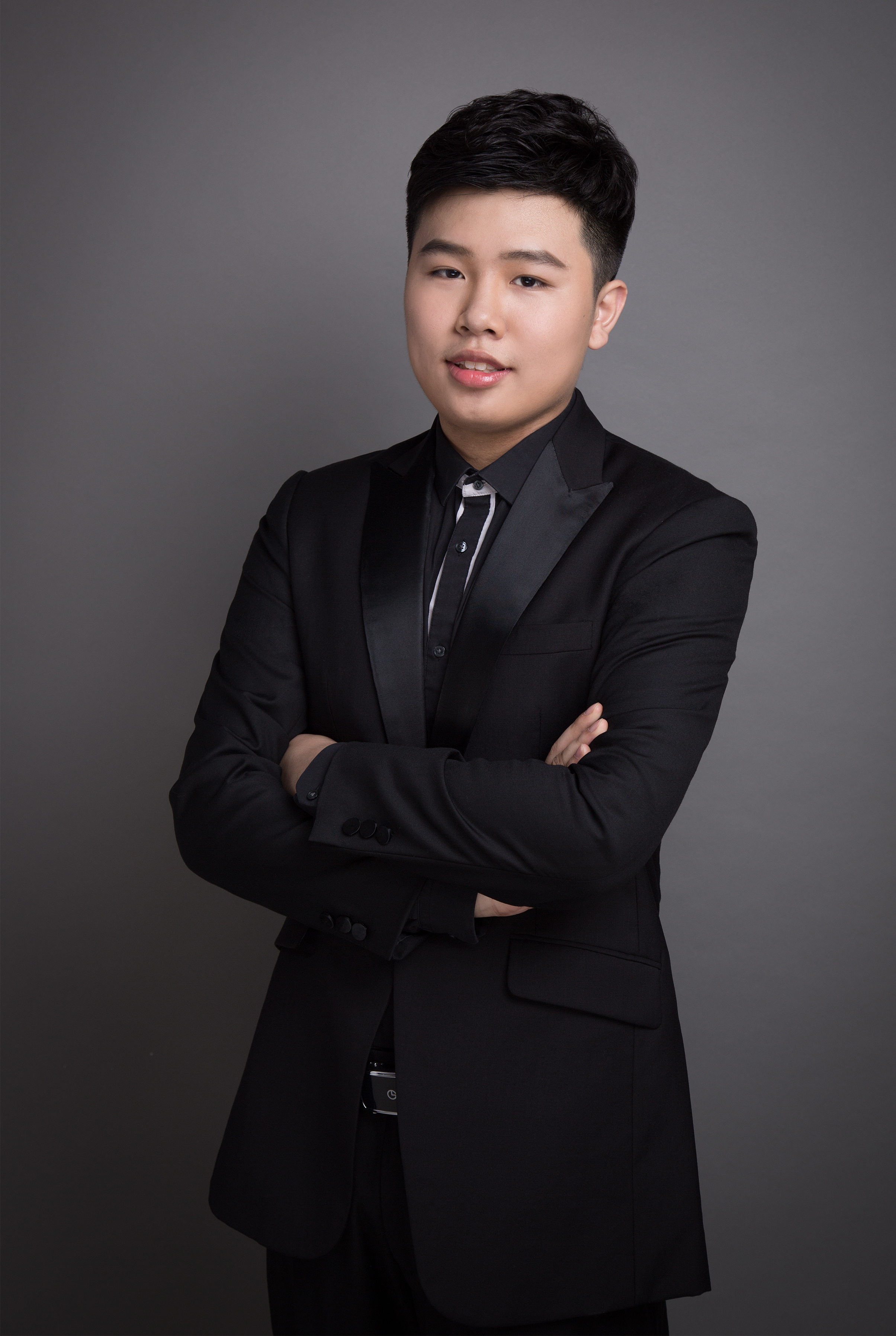
Session 12 | Pianist 23 | JunLin Wu from ChinaNot yet-another very gifted young Chinese pianist! The 24-year old can do anything technically that the piano is capable of but more interestingly he has a real sense of programming and sensibility. He seeks out the unusual in what can seem the daunting task of a 40-minute preliminary round. After the opening Australian piece, he gave a very convincing interpretation of Scriabin’s Fantasie in B minor. He finished his program with two pieces from Isaac Albeniz’ lesser-known Iberia and Cantos de España. The finale was the barn-storming La valse by Maurice Ravel ending with the same composer’s Jeux d’eau as an encore with a flourish.
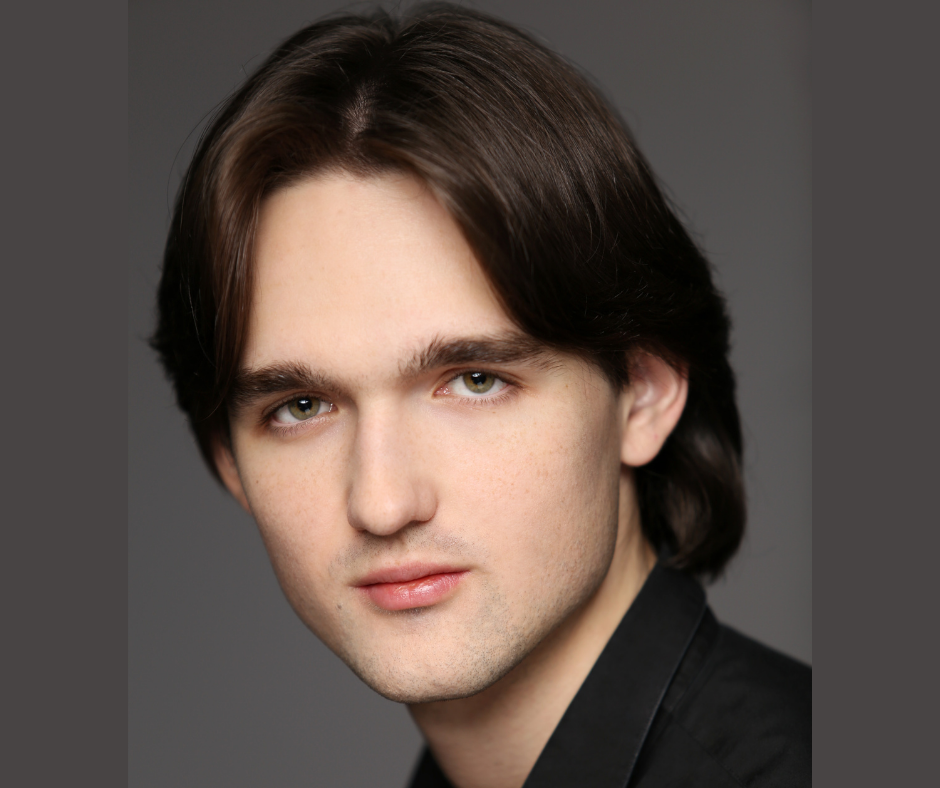
Session 12 | Pianist 24 | Philipp Lynov from Russia23-year-old Russian pianist Philipp Lynov is the recipient of several first prizes including the Paderewski competition from Poland and the Stanislaw Neuhaus competition in Moscow. His programme was nothing if not daring. Opening with the late B-flat major sonata by Mozart he displayed a deft and nimble touch. With beautifully charged dynamics the three movements displayed ultimate beauty of tone. He launched into the second piece without much ado. He had chosen the Prelude and Fugue in G-sharp minor by Sergey Taneyev. So far this is only the second time we have heard it in the competition. Three excerpts from Carl Vine’s 5 Bagatelles were next. A far cry from this last choice is the set of 4 Etudes opus 2 by Prokofiev. This was a superlative success with Philipp being ideal as interpreter of the Russian repertoire. I would nominate both these young men from day 6 into the semi-final round - JunLin and Philipp.
Day 7 - July 8th
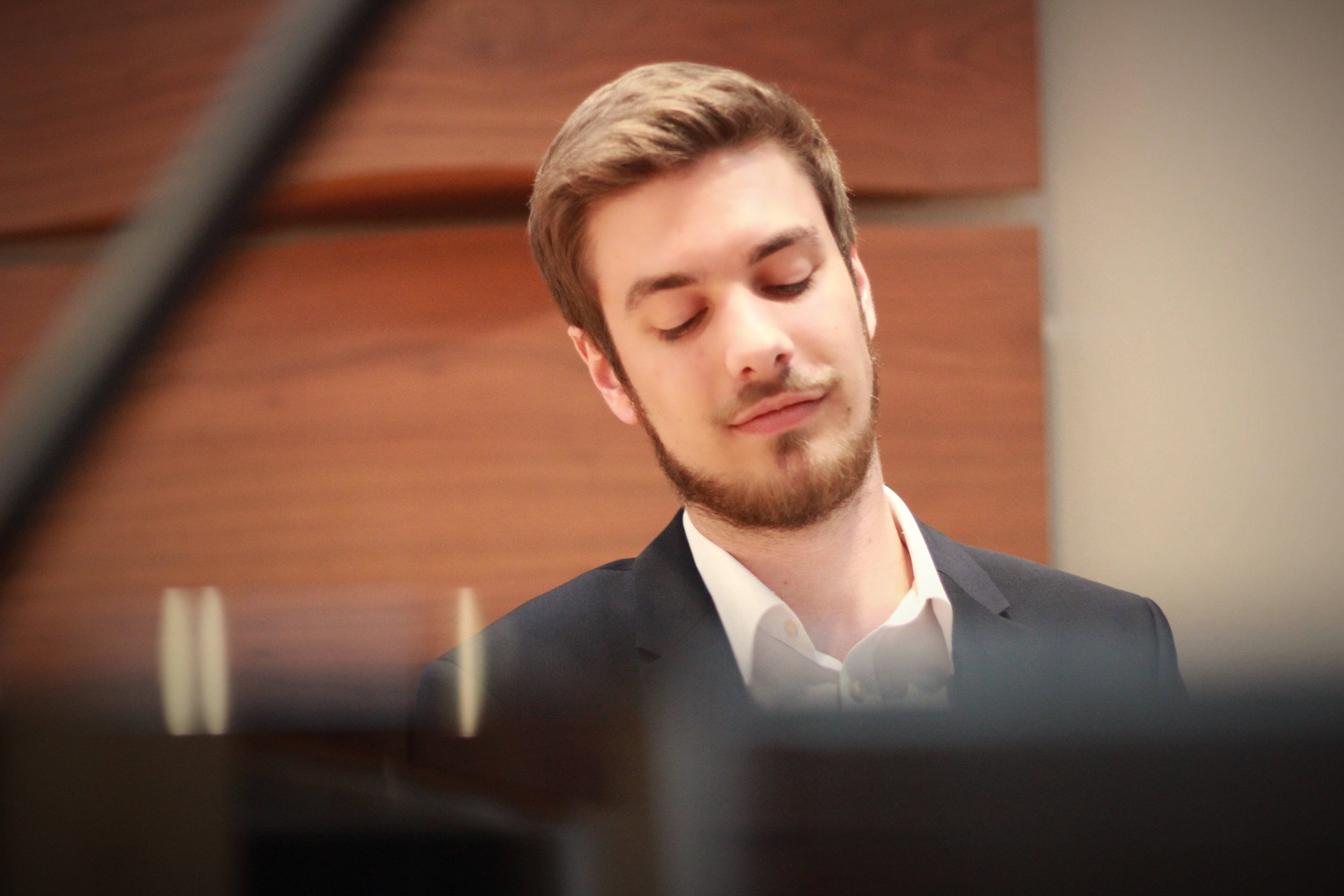
Session 13 | Pianist 25 | Dominic Chamot from SwitzerlandOne of the few Europeans in the preliminary round 26-year-old Dominic shows a remarkable maturity that belies his years. Not many musicians could couple Janacek with Liszt. He showed great sensitivity in the former’s piano suite ‘In the Mists’. There was a real mastery of tone colours and a dynamic palette second to none. The second piece was the Réminiscences de Norma de Bellini by Franz Liszt. Here was no empty virtuosic performer. Not only did he execute each hurdle with musicality but he shaped the whole with an extraordinary sense of architecture.

Session 13 | Pianist 26 | Siqian Li from ChinaHere is an interesting programme. Siqian is 30 years old and studied at the Beijing conservatory before proceeding to Boston then London where she now studies. She opened her recital with a little-known Theme and variations by Mozart. They were the 9 variations based on a Minuet by Duport. Although executed very prettily this was hardly a good choice for a competition. More successful were the 5 Bagatelles by Carl Vine and she suddenly came into her own with the Scriabin fantasy in B minor. Not enough however to bring her into the semi-final round.
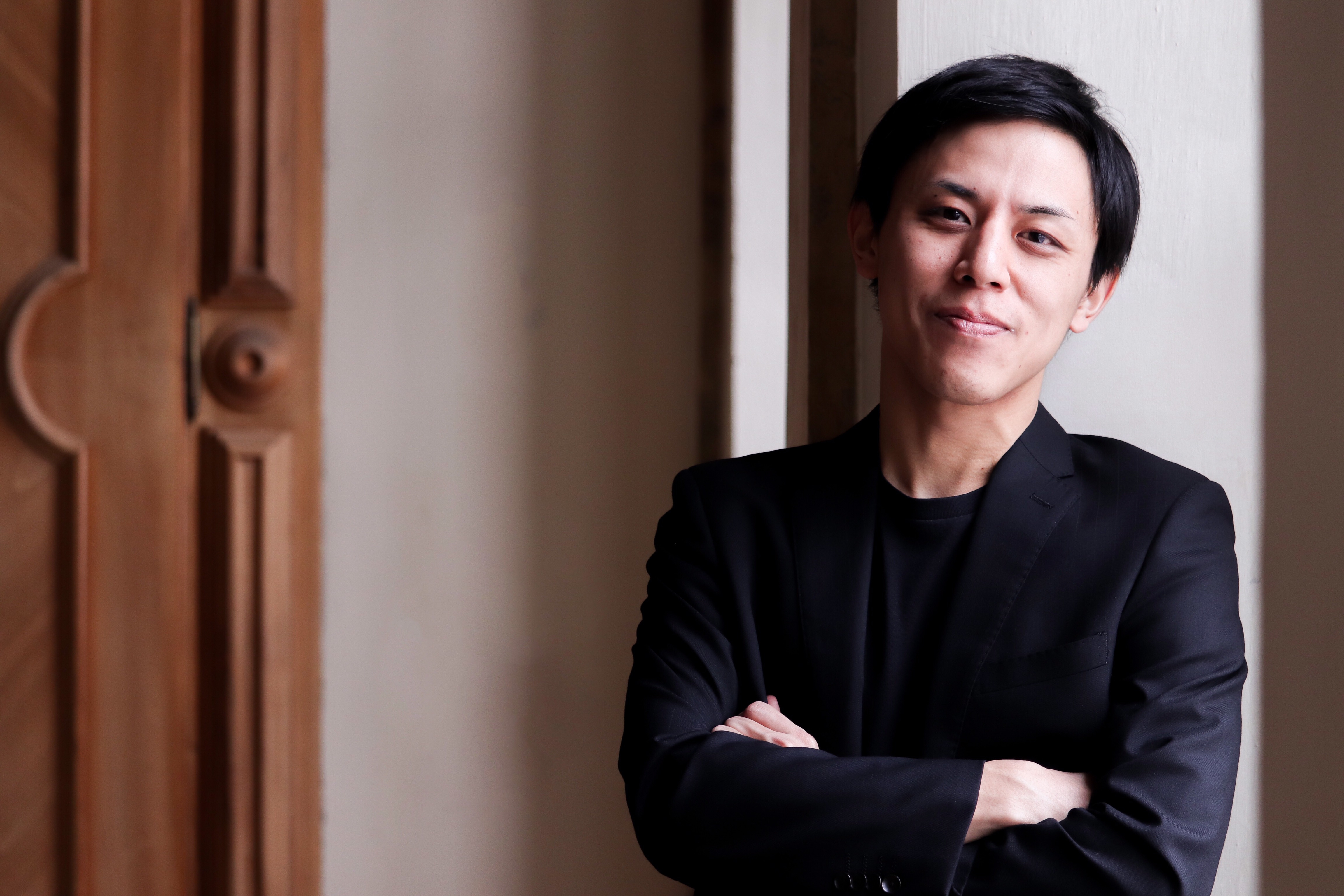
Session 14 | Pianist 27 | Yu Nitahara from JapanAround 30 years old this Japanese man is a mature and complete artist. Winning prestigious prizes especially in the Mozartcompetition in Salzburg and other prizes in Morocco, Bucharest and Bratislava he excels as soloist, in concerto and especially Chamber music.Four Preludes from Debussy’s book 1 opened the preliminary round. He has a beautiful touch highlighting the many shades and sensibilities of these mini- tone poems.Next was an authoritative account of Brahms’ opus 116 Fantasies.
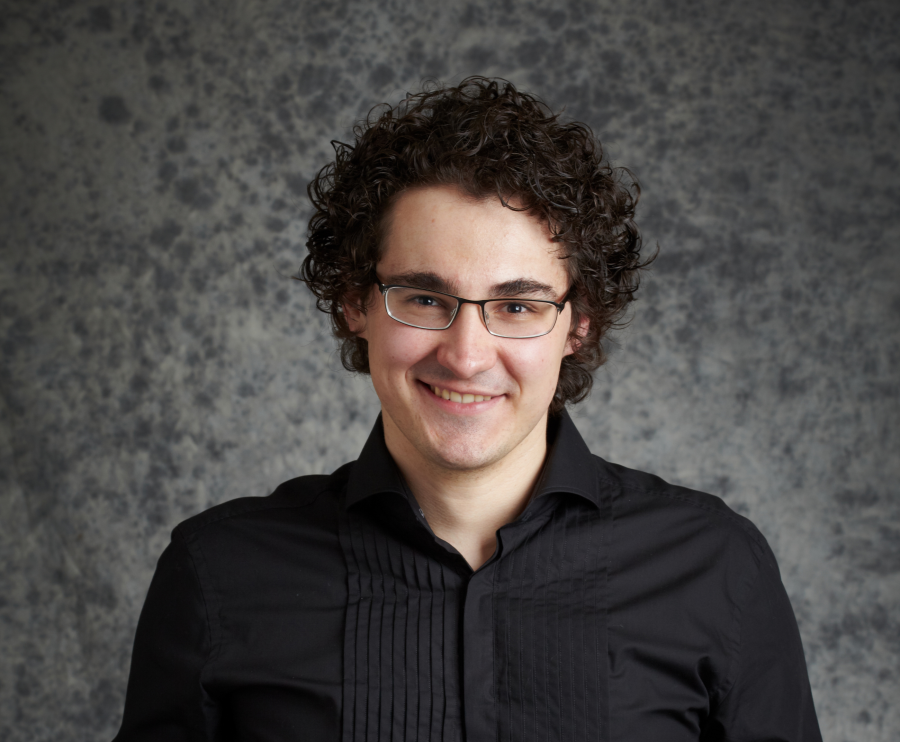
Session 14 | Pianist 28 | Artem Yasynskyy from UkraineThe last pianist from day 7 was the 33-year-old Artem from the Ukraine.Unluckily for him just days before he was due to record his preliminary round he came down with the dreaded COVID-19 infection. Quarantined for a two week period without access to a piano he did an astonishing job. If anything playing with a fresh approach compared with others who had perhaps over-practised.Starting with the G major Partita by Bach it was soon evident that this young man was something special. With no token bow to historical performance practises his reading wasmusical and thoughtful in equal measure.He then played the Bach/Busoni arrangement of the organ Toccata in D minor reminding me of Stokowski’s orchestral arrangement.He finished his programme withyet another performance of Brahms’ Paganini variations book 1. His musical prowess and sheer technical skills won him the day and I would unhesitatingly recommend him to the semi-finals.
DAY 8 – JULY 9TH
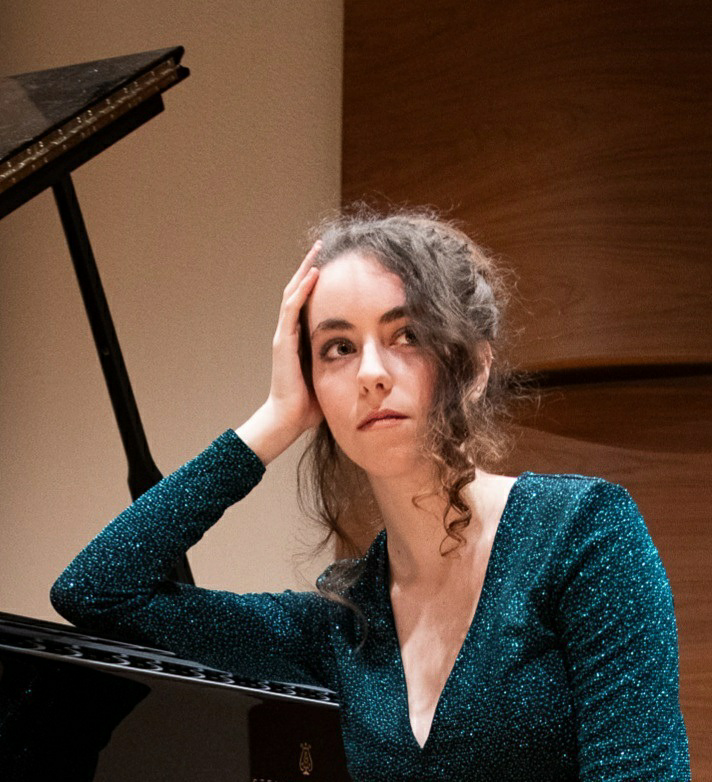
Session 15 | Pianist 29 | Alice Burla from CanadaStill only 25 this Toronto-born pianist has achieved international stardom in a short while. As a recitalist and in chamber music she is already a veteran of many piano festivals.From the start it is evident that this girl has immense talent. She was only six years old when she gained admission to New York’s Juilliard School of Music a rare honour indeed.She then moved to Madrid where she came under the influence of the great Russian teacher Dmitri Bashkirov. She now lives and works in Basel. Alice started her programme with a Haydn sonata, the not very well known early G major Hob XVI/6.A technically modestly challenging work she brought her unique stylistic awareness and gentility of phrasing making it immediately appealing and memorable.She clearly has a facility with Hungarian composers choosing to play Liszt and Bartok.The Liszt pieces were the Bagatelle sans Tonalite and Nuages gris, both late and uncompromising works. She ended with Bartok’s charming and rhythmic Dance Suite.Here is a major talent.I would be very surprised if she was not awarded a laureate of this competition.
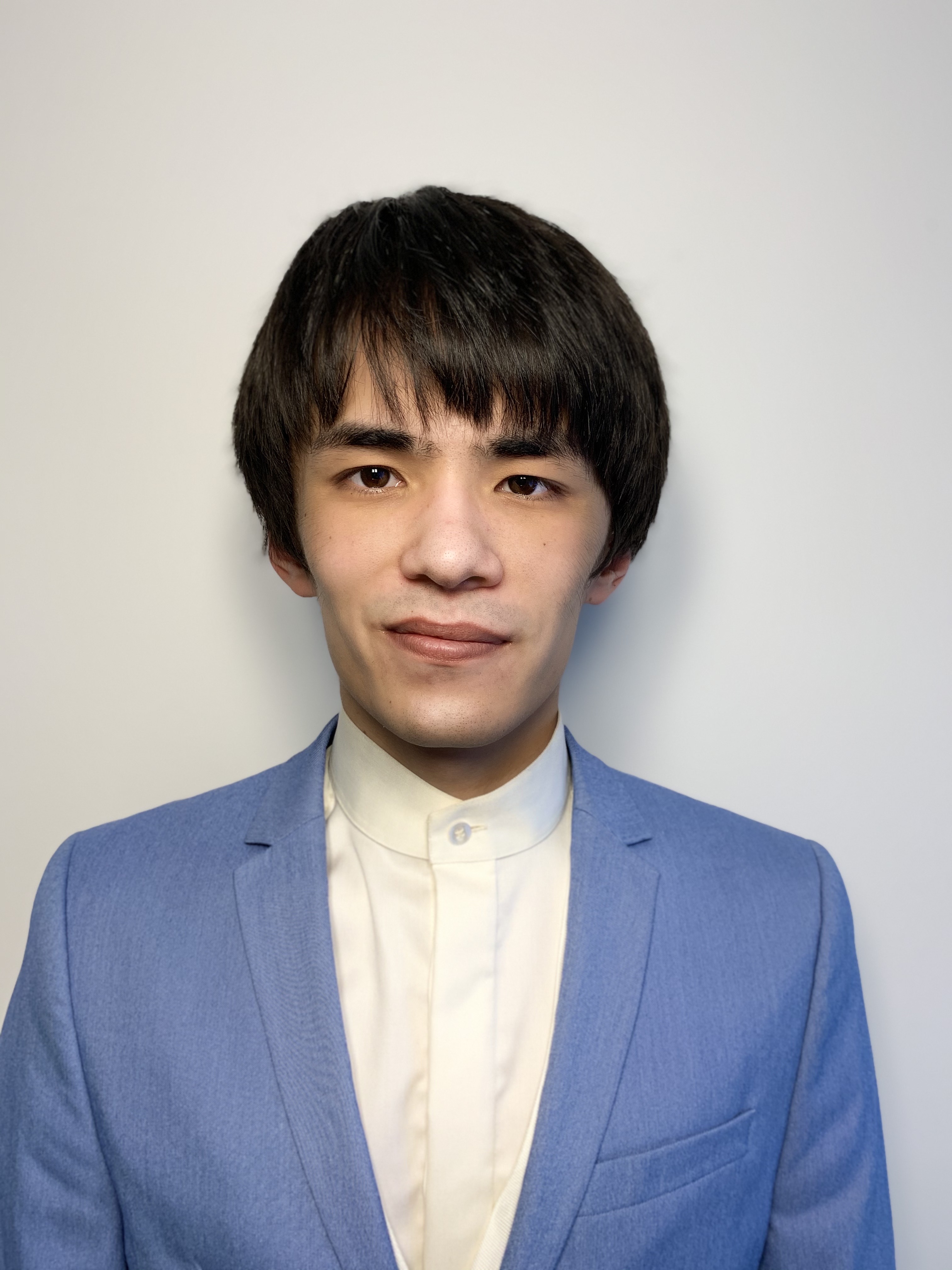
Session 15 | Pianist 30 | Dmitry Sin from RussiaAlthough just over 25 years oldthis Russian is a very mature musician. His programme reflected musical values rather than technical barnstorming. A proponent of historical performance practises he started his programme with Bach’s Toccata in E minor. This and the following Mozart Fantasy in C minor were both wonderfully proportioned.His main work was Ravel’s La Valse. He did a deft job and if it was not for the stiff competition from other musicians of the same age he may have made it to the semifinals.
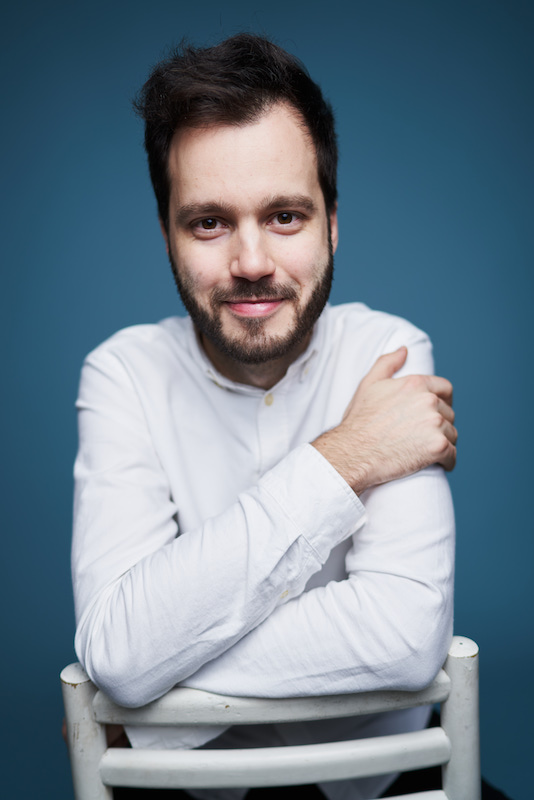
Session 16 | Pianist 31 | Antonii Baryshevskyi from UkraineA remarkably mature musician, his one piece programme brought him straight into the semi-finals. First prize winner in the Tel AvivRubinstein competition as well as the Busoni prize in Bolzano, Italy he clearly joins the heavyweights among his very famous compatriots including such names as Horowitz and Gilels.A remarkable rendition of the popular warhorse of Mussorgsky’s ‘Pictures at an Exhibition’ a memorial to the artist and his friend, Hartmann. Although such a familiar piece young Antonii was able to convey a huge rush of emotions painting a larger than life portrait of this artist on a huge scale. Every technical hurdle was met with great aplomb, actively ravishing the ear at the same time as an unerring sense of architecture. This young pianist will surely be a semifinalist and possibly even a laureate.
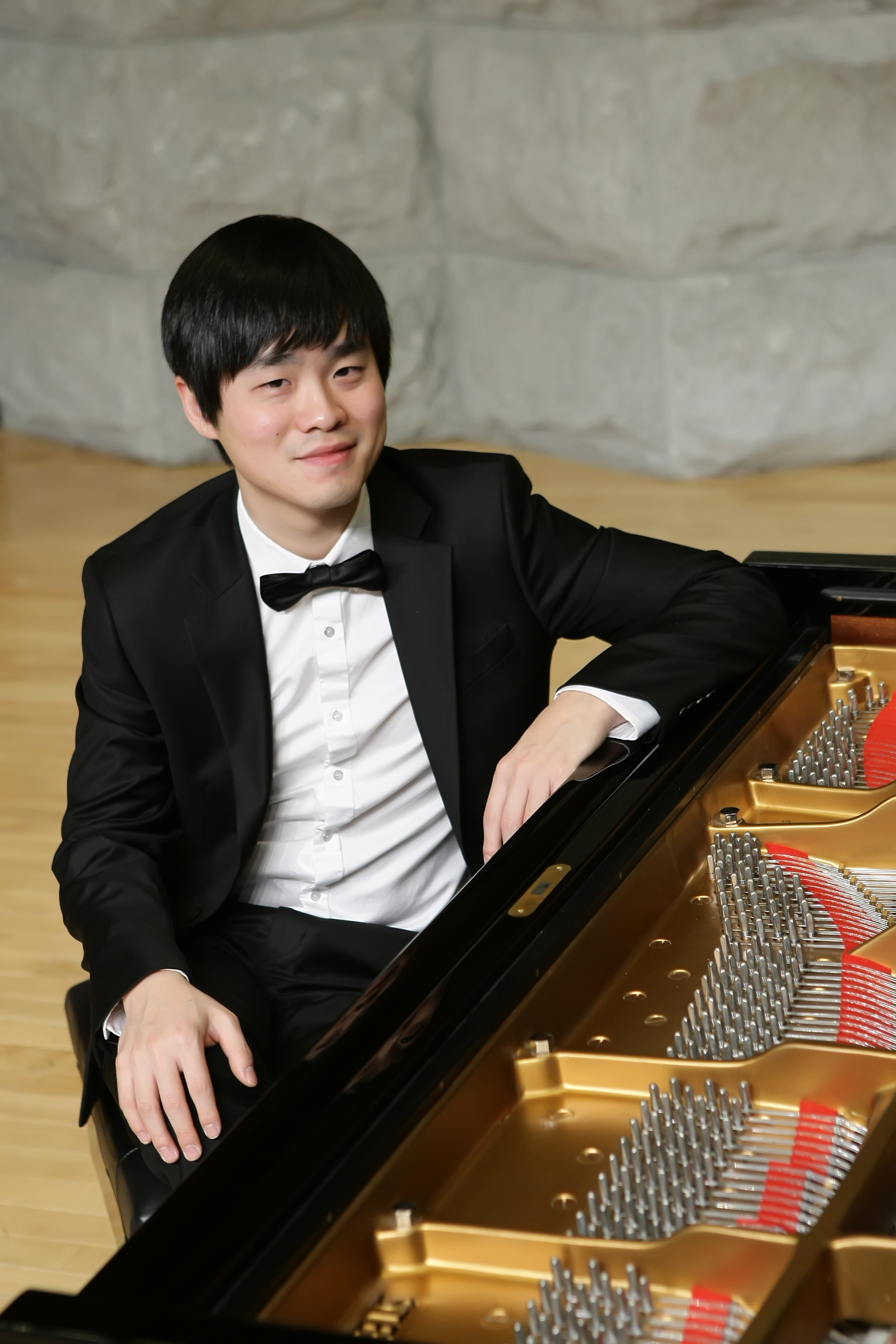
Session 16 | Pianist 32 | Se-Hyeong Yoo from South KoreaThis Korean wasthe only one in the preliminary rounds to play standard repertoire. Although it was like a breath of fresh air to hear pieces by Beethoven and Chopin, under ordinary circumstances his playing would be more than competitive.Beethoven’s Sonata no 27 in E minor op 90 is in 2 movements and is evocative of the piano solo world of Schubert. His Chopin was also lovely ending with a soulfully expressive Ballade no 3 in A flat major.
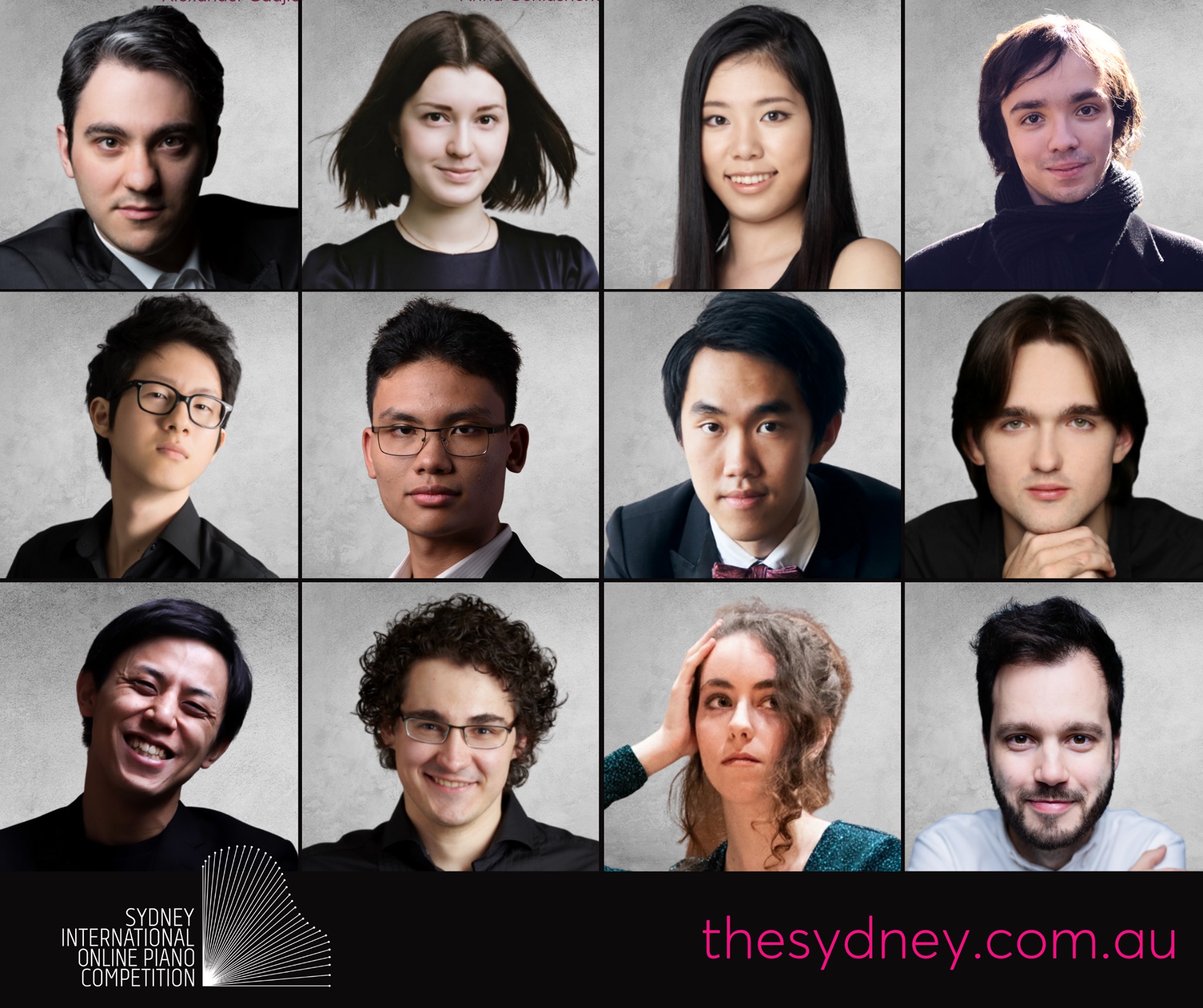
This brings me to the end of an overview of the pianists in the first-ever online international piano competition from Sydney. 285 participants were screened from which 32 that entered the preliminary rounds each recorded 3 recitals in the eventuality that they may be needed to do semi-final and final rounds. This has meant a lot of preparation time for them as therefor in addition they prepared 2 more recitals (50 minutes for semifinals and 80 minutes for finals) regardless of the outcome. 7 international judges had the unenviable task of choosing 12 from the 32 by secret online ballot.
Enjoy The Sydney from your homes. It is still not too late for your Season Pass or buy separate tickets for your favourite performers for you to keep for an unlimited period. Let the music begin!

